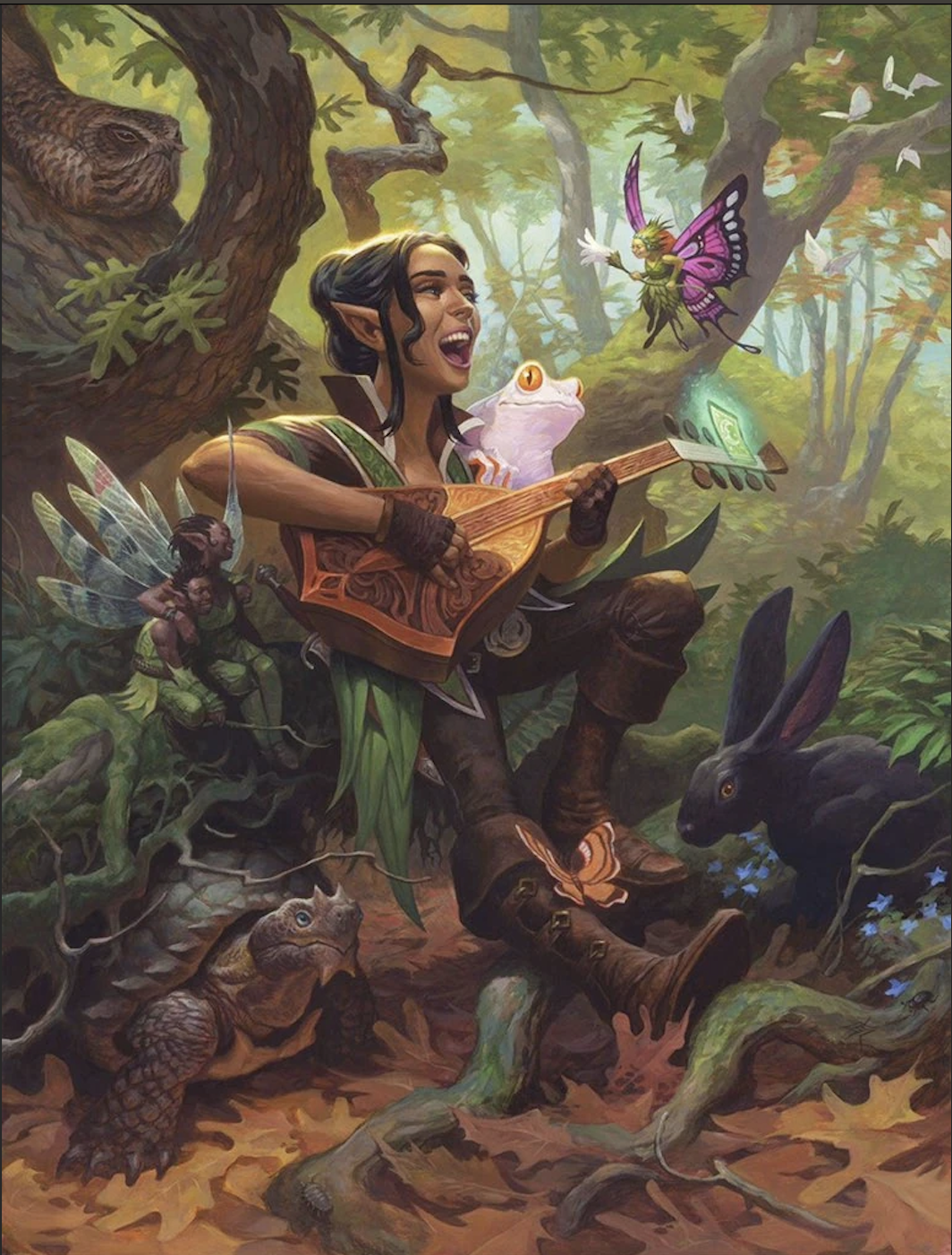

The Bard
An elderly man in a vibrant purple
coat stepped out of the shadows into
the middle of the giant stronghold. With
the eyes of all his foes on him, he began to
play a masterful song ridiculing the frost
giant lord. As the multitude of foes closed
around on him, the elder musician's heroic
companions jumped from the battlements,
and motivated by the wondrous song, made
quick work of the giant and his horde.
The sprightly halfling let forth a mighty
blast on her war horn and led the charge
toward the hobgoblin legion. Not to be
outdone, and inspired by her bravery,
her comrades drew their weapons
and joined her. When the day was
won, the halfling began to write a
ballad of the heroics of the day.
An elf of otherworldly beauty
and grace stood before the townsfolk against the
backdrop of a dark and rainy night. For uncounted
years, they had lived under the brutal rule of an evil
vampire lord. After many hopeless nights, the tales told
by this elegant stranger had given the townsfolk renewed
hope that they could overthrow their undead overlord.
All three of the heroes described above are considered Bards. The versatile performers wander the world collecting tales, talents, knowledge, and unique magical abilities which they use to motivate and inspire heroism in their comrades.
The Song of Creation
The first tale every bardic mentor imparts to their protégé is the Song of Creation. Though the myth has many variations, they all tell of the multiverse being created by the song. All Bards learn to draw upon the creative power of this song to work their signature magic to inspire greatness in others.
While not all Bards are wandering musicians, they each learn to draw upon the song of creation in their own unique way. Whether through their speech, songs, or art, all Bards recognize the magical power of spoken words. While their magic may not be as powerful or wondrous as a Wizard or Cleric, their subtle and versatile abilities allow Bards and their allies to overcome nearly any challenge they may face.
Wondrous Wanderers
True practitioners of bardic magic aren't common. Not every minstrel or jester is a true Bard. Learning to channel the song of creation requires natural talent and dedication. True Bards spend their lives wandering the land gathering local legends, secret lore, and unique magic. No two Bards are ever alike.
Bards are marked by an unquenchable desire to learn new things, master new skills, and gather strange tales. For these travelers, the call of adventure is nearly impossible to resist. They often find themselves in the company of heroes delving into forgotten tombs, deciphering ancient scrolls, and on the hunt for strange exotic creatures. Any Bard that can tell an awe-inspiring story from personal experience earns renown among other Bards. Indeed, after telling stories about heroes accomplishing mighty deeds, many Bards take these themes
to heart and assume heroic roles themselves.
Creating
Your Bard
When creating your Bard, the most important thing for you to consider is your Bard's Muse, or inspiration. Do they seek out beauty, writing ballads inspired by the sights they see? Maybe they find inspiration in tales of selfless heroism and seek the next hero of the age? Or, maybe the lure of influence is what drives your Bard to travel the land gathering lore and magic.
Also, consider your Bard's preferred style of performance. Are they a virtuoso, known throughout the land for their skill with their signature instrument? Or, are they a rowdy teller of tales who only performs in the cheapest tavern in each town?
Multiclassing and the Bard
If your group uses the optional multiclassing rule, here is what you need to know should you choose to take your first level in the Bard class.
Ability Score Minimum. As a multiclass character, you must have a minimum Charisma score of 13 in order to take your first level in Bard, or to take a level in another class if you are already a Bard.
Proficiencies Gained. If Bard is not your initial class, you gain proficiency in light armor, one skill from the Bard skill list, and one musical instrument when you take your first level in the Bard class.
Spell Slots. Add half your levels (rounded down) in the Bard class to the appropriate levels from other classes to determine available spell slots.
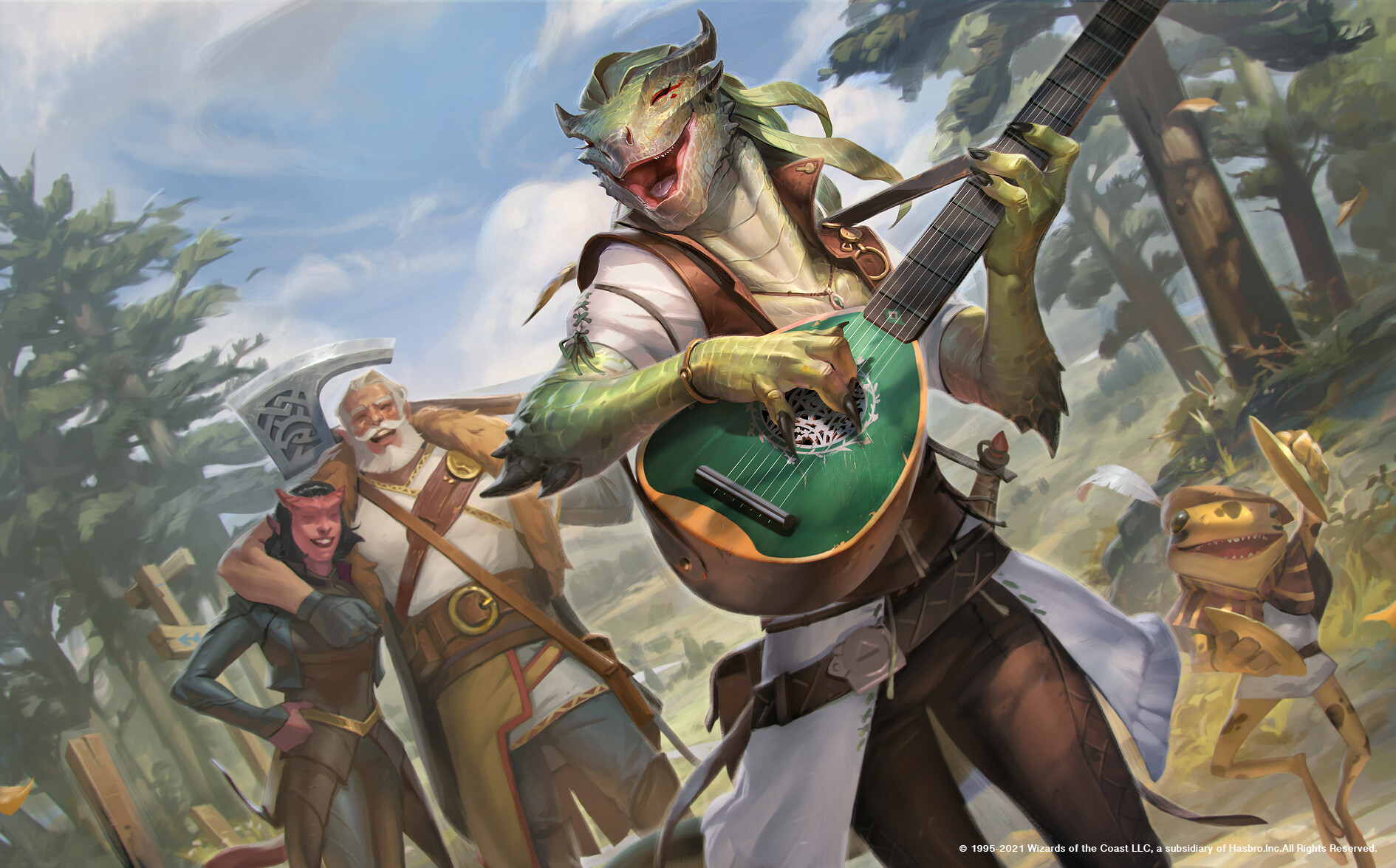

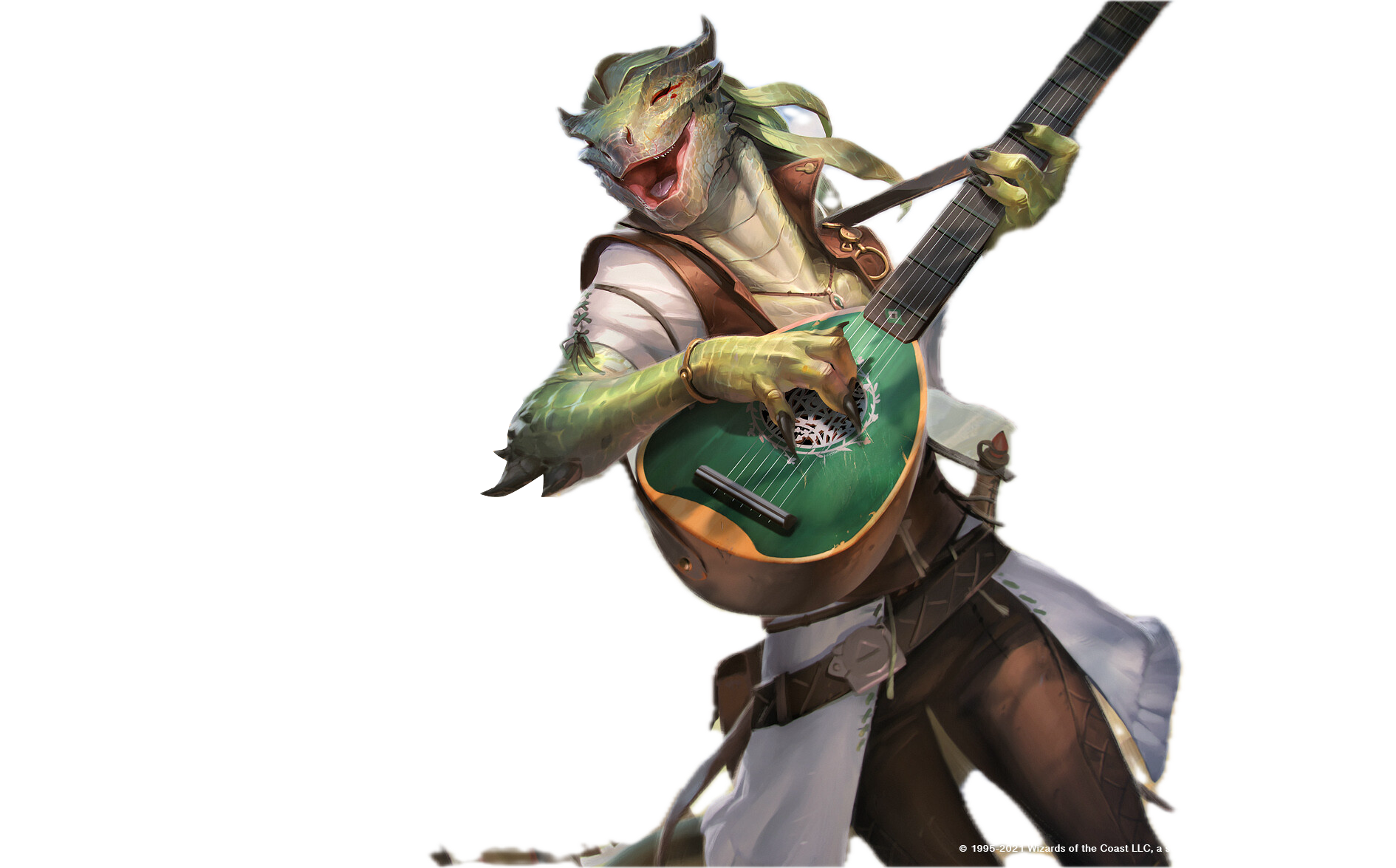



The Bard
| Level | PB | Features | Bardic Insp. |
Cantrips Known |
Spells Known |
1st | 2nd | 3rd | 4th | 5th | Chords Known |
|---|---|---|---|---|---|---|---|---|---|---|---|
| 1st | +2 | Bardic Inspiration, Folklore | d4 | — | — | — | — | — | — | — | — |
| 2nd | +2 | Spellcasting, Chords of Power | d4 | 2 | 2 | 2 | — | — | — | — | 2 |
| 3rd | +2 | Bardic Tradition, Magical Secrets, Harmonious Recovery |
d4 | 2 | 3 | 3 | ─ | ─ | — | — | 2 |
| 4th | +2 | Ability Score Improvement | d4 | 3 | 3 | 3 | ─ | ─ | — | — | 2 |
| 5th | +3 | Tradition Feature, Magical Secrets | d6 | 3 | 4 | 4 | 2 | ─ | — | — | 2 |
| 6th | +3 | Folklore | d6 | 3 | 4 | 4 | 2 | ─ | — | — | 3 |
| 7th | +3 | Bardic Virtuoso | d6 | 3 | 5 | 4 | 3 | ─ | — | — | 3 |
| 8th | +3 | Ability Score Improvement | d6 | 3 | 5 | 4 | 3 | ─ | — | — | 3 |
| 9th | +4 | Magical Secrets | d6 | 3 | 6 | 4 | 3 | 2 | — | — | 3 |
| 10th | +4 | Folklore, Font of Inspiration | d6 | 4 | 6 | 4 | 3 | 2 | — | — | 4 |
| 11th | +4 | Tradition Feature | d8 | 4 | 7 | 4 | 3 | 3 | — | — | 4 |
| 12th | +4 | Ability Score Improvement | d8 | 4 | 7 | 4 | 3 | 3 | — | — | 4 |
| 13th | +5 | Magical Secrets | d8 | 4 | 8 | 4 | 3 | 3 | 1 | — | 4 |
| 14th | +5 | Folklore | d8 | 4 | 8 | 4 | 3 | 3 | 1 | — | 5 |
| 15th | +5 | Tradition Feature | d8 | 4 | 9 | 4 | 3 | 3 | 2 | — | 5 |
| 16th | +5 | Ability Score Improvement | d8 | 4 | 9 | 4 | 3 | 3 | 2 | — | 5 |
| 17th | +6 | Magical Secrets | d10 | 4 | 10 | 4 | 3 | 3 | 3 | 1 | 5 |
| 18th | +6 | Folklore | d10 | 4 | 10 | 4 | 3 | 3 | 3 | 1 | 6 |
| 19th | +6 | Ability Score Improvement | d10 | 4 | 11 | 4 | 3 | 3 | 3 | 2 | 6 |
| 20th | +6 | Mythic Secrets | d10 | 4 | 11 | 4 | 3 | 3 | 3 | 2 | 6 |
Class Features
Hit Points
- Hit Dice: 1d8 per Bard level
- Hit Points at 1st Level: 8 + your Constitution modifier.
- Hit Points at Higher Levels: 1d8 (or 5) + your Constitution modifier per Bard level after 1st
Proficiencies
- Armor: Light armor, medium armor
- Weapons: Simple weapons, rapiers, shortswords.
- Tools: one musical instrument and one tool of your choice
- Saving Throws: Dexterity, Charisma
- Skills: Choose three from Acrobatics, Arcana, Deception, History, Insight, Investigation, Perception, Performance, Persuasion, Religion, Sleight of Hand, or Stealth.
Equipment
As a Bard, you start with the following equipment, in addition to the equipment that is granted to you by your background:
- (a) a rapier, (b) a shortsword, or (c) any simple weapon
- (a) leather armor or (b) a chain shirt
- (a) a diplomat's pack or (b) an entertainer's pack
- One musical instrument of your choice and a dagger
Quick Build
You can make a Bard quickly by following these suggestions. First, make Charisma your highest ability score, followed by
Dexterity. Second, choose the Entertainer background.
Bardic Inspiration
You can inspire heroism with both word and song. Beginning at 1st level, when another creature who can hear you within 30 feet makes an ability check or fails an attack roll or saving throw, you can use a reaction to expend a Bardic Inspiration Die, a d4, roll it, and add the result to the target's roll.
You have a number of Bardic Inspiration Dice equal to half your Bard level (rounded up) + your Charisma modifier. You regain all expended Dice when you finish a short or long rest.
Your Bardic Inspiration Die grows at certain Bard levels, as shown in the Bardic Insp. column of the Bard Class table.
Folklore
At 1st level choose one skill and one tool or language. You are now proficient in this skill or tool, or learn to speak, read, and write that language. If you choose a skill or tool that you are already proficient in, you add double your proficiency bonus to any ability check you make with that skill or tool.
You choose another skill and one tool or language to gain this benefit when you reach 6th, 10th, 14th, and 18th level.
Bardic Folklore
Known for their eclectic skill sets, the proficiencies and languages that Bards gain through the Folklore feature should reflect their travels and adventures.

Spellcasting
At 2nd level, you can use your mastery over word and song to draw upon the Song of Creation to produce wondrous spells:
Cantrips
You learn two Cantrips of your choice from the Bard spell list. You learn an additional Bard Cantrip at 4th and 10th level, as shown in the Cantrips Known column of the Bard table.
Spell Slots
The Bard table shows how many spell slots you have to cast your Bard spells of 1st-level and higher. To cast Bard a spell, you must expend a slot of the spell's level or higher, and you regain all expended spell slots when you finish a long rest.
Spells Known of 1st-Level and Higher
You know two 1st-level spells of your choice from the Bard spell list at the end of this class. The Spells Known column
of the Bard table shows when you learn more Bard spells of your choice. Each spell you learn must be of a level for which you have spell slots. For instance, when you reach 5th level in this class, you learn one new Bard spell of 1st or 2nd-level.
Whenever you gain a Bard level, you can replace one Bard spell that you know with another Bard spell of your choice.
Spellcasting Ability
Charisma is your spellcasting ability for your Bard spells,
as your magic comes from your ability to wield the Song
of Creation. You use Charisma when a Bard spell refers
to your spellcasting ability, when setting a saving throw
DC, and whenever making an attack roll with one.
Spell save DC = 8 + your proficiency
bonus + your Charisma modifier
Spell attack mod. = your proficiency
bonus + your Charisma modifier
Ritual Casting
You use your varied knowledge to cast the
ritual version of any Bard spell you know,
so long as that spell has the ritual tag.
Spellcasting Focus
You can use any musical instrument
you are proficient in as a spellcasting
focus for the Bard spells you know.
Chords of Power
Your skills allow you to reproduce minor portions of the Song of Creation, known as Chords of Power. At 2nd level, you can reproduce two Chords, which you choose from the list at the end of this class. Most Bards use music or song to reproduce these Chords, but others reproduce them by recalling stories of heroism, legend, or tragedy.
During a long rest, you can spend 1 hour immersed in the Song of Creation practicing your chosen performative art to replace one Chord you know with another of your choice.
At certain levels you learn additional Chords of Power, as shown in the Chords Known column of the Bard Class table.
Bardic Tradition
At 3rd level, choose the Bardic Tradition that best represents the varied skills, talents, and knowledge you have gathered in your wide wanderings: Fool, Loremaster, or Skald.
Also included at the end of this class are Bardic Traditions inspired by the official options for the Bard class: the Blade, Conspirator, Counselor, Mesmer, and True Singer.
Your Bardic Tradition grants you features at 3rd level, and again when you reach 5th, 11th, and 15th level in this class.
Magical Secrets
You have gathered magical knowledge from many disciplines. At 3rd level, you learn two 1st-level spells of your choice from any class spell list. They become Bard spells for you, but they do not count against your total number of Spells Known, and you can't replace these spells when you gain a Bard level.
You learn two additional Magical Secrets of certain
spell levels at 5th level (2nd-level spells), at 9th level
(3rd-level spells), at 13th level (4th-level spells), and
finally at 17th level (5th-level spells).
Harmonious Recovery
Starting at 3rd level, you can immerse yourself in
the Song of Creation to regain magical potential.
During a short rest, you can spend 10 minutes
practicing your chosen performative art, to regain
expended spell slots of a total level equal to your
Charisma modifier (minimum of one 1st-level slot).
Once you use this feature to regain spell slots, you
must finish a long rest before you can do so again.
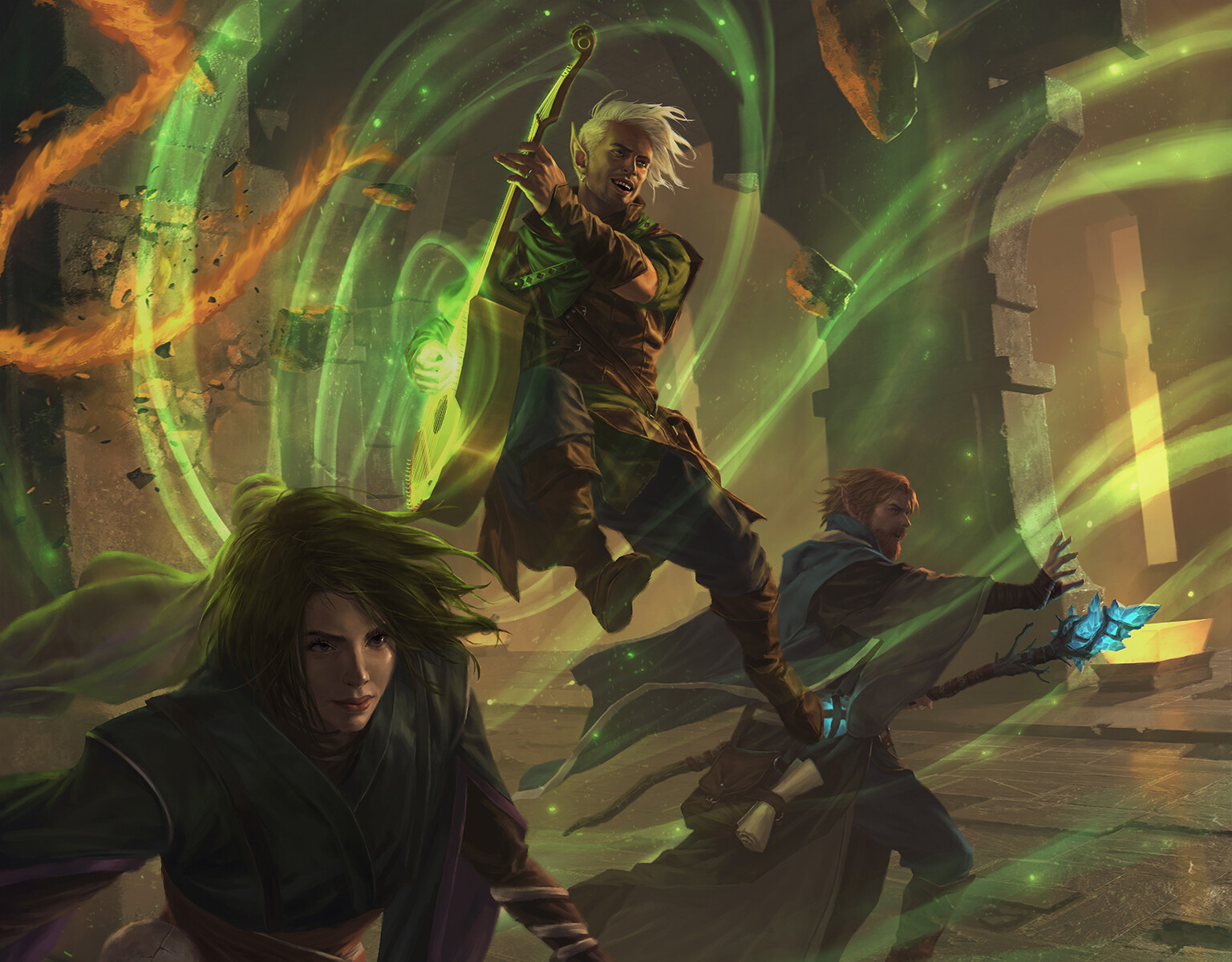


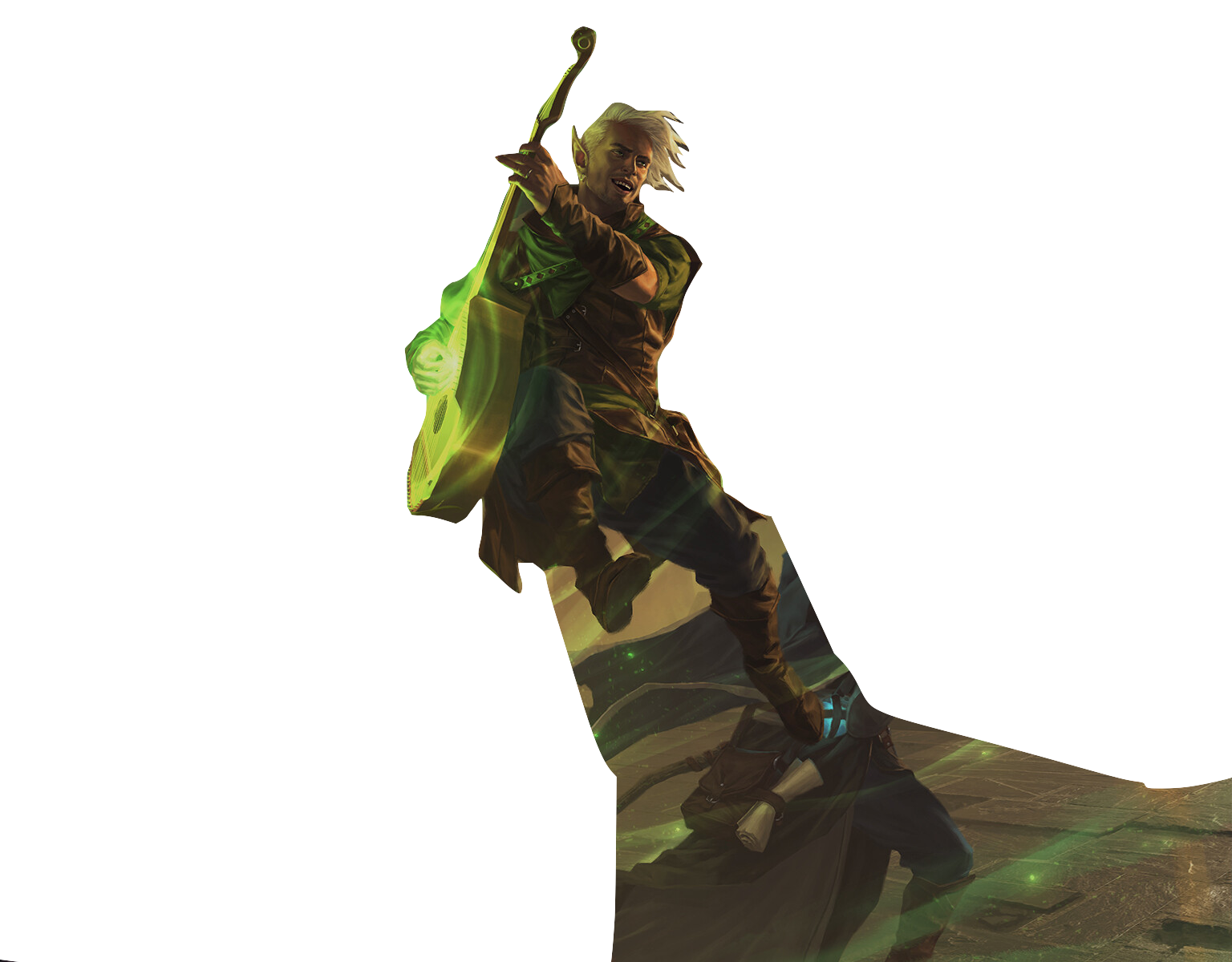
Ability Score Improvement
When you reach 4th level, and again at 8th, 12th, 16th, and 19th level, you can increase one ability score of your choice by 2, or two ability scores by 1. As normal, you can't increase one of your ability scores above 20 using this feature.
Bardic Virtuoso
Your intuitive knowledge of the Song of Creation propels your performative abilities to supernatural heights. Starting at 7th level, you add double your proficiency bonus to ability checks you make that incorporate a musical instrument.
Also, when you perform a Chord of Power that lasts until the start of your next turn, such as Lay of Alacrity, you can use a bonus action on the next turn to continue performing that Chord without expending a Bardic Inspiration Die.
Font of Inspiration
You can draw power from the ambient music from the Song of Creation in times of need. Starting at 10th level, you regain one expended Bardic Inspiration Die when you roll initiative.
You can also use your bonus action to expend one spell slot and regain Bardic Inspiration Dice equal to the slot's level.
Mythic Secrets
You have uncovered knowledge of some of the most powerful and secret magicks of the multiverse. At 20th level, you learn one 6th-level and one 7th-level Magical Secrets spell. You can cast each of these spells once at their lowest level, and regain
the ability to do so when you finish a long rest.
Bard Spell List
Below are the spells available to Bards, organized by spell level. They are found in the Player's Handbook, in Xanathar's Guide to Everything *, and Tasha's Cauldron of Everything **.
Spells marked with LL are found in the laserllama Spell Compendium, which includes both new and alternate spells.
Cantrips (0-Level)
blade ward LL
booming blade LL
dancing lights
friends LL
glitterbeam LL
guidance LL
light
mage hand
mending
message
minor illusion
prestidigitation
resistance LL
thunderclap *
true strike LL
vicious mockery LL
1st-Level
bane
cause fear *
charm person
color spray
command
comprehend languages
cure wounds
detect magic (ritual)
disguise self
dissonant whispers
faerie fire
feather fall
healing word
heroism
hideous laughter
identify (ritual)
longstrider
silent image
sleep
thunderous smite LL
thunderwave
2nd-Level
aid
blindness/deafness
calm emotions
crown of madness
detect thoughts
enhance ability
enlarge/reduce
heat metal
hold person
invisibility
locate creature LL
locate object
magic mouth
2nd-Level Cont.
mirror image
phantasmal force
pyrotechnics *
restoration LL
see invisibility
shatter
silence (ritual)
skywrite (ritual)
suggestion
zone of truth
3rd-Level
bestow curse
clairvoyance
dire wail LL
dispel magic
enemies abound
fear
haste
hypnotic pattern LL
irresistible dance LL
major image
mass healing word
nondetection
sending
slow
sonic wave LL
tiny hut (ritual) LL
tongues
4th-Level
banishment
charm monster *
compulsion
confusion
dimension door
fabricate
freedom of movement
greater invisibility
hallucinatory terrain
phantasmal killer
5th-Level
animate objects
dominate person
dream
geas
hold monster
legend lore
mass cure wounds
mislead
modify memory
seeming
skill empowerment *
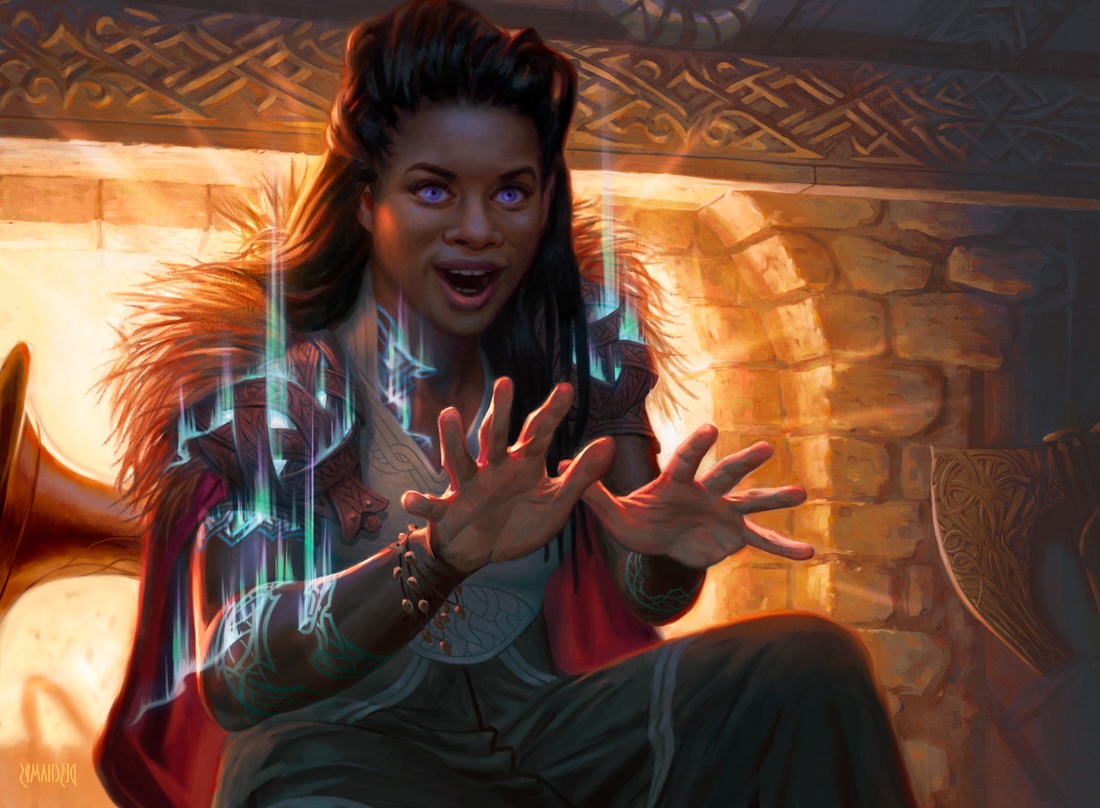


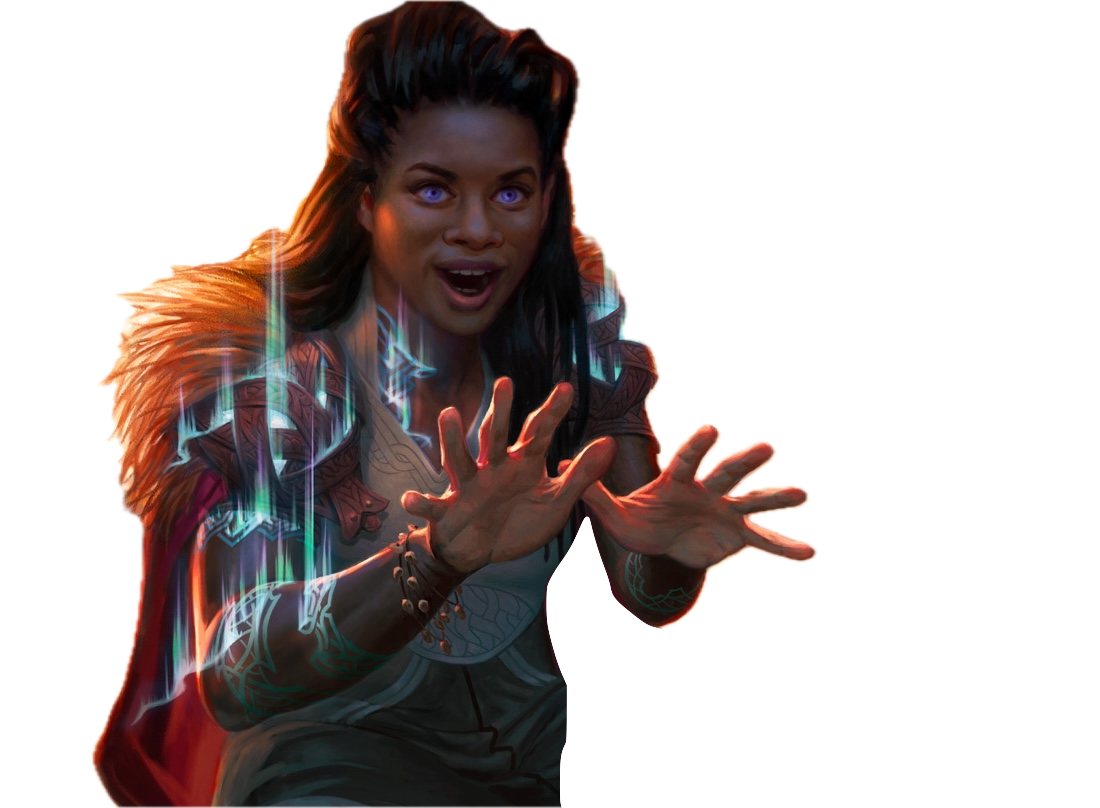


Bardic Tradition
Choose a Bardic Tradition from the options below that best represents your Bard's muse and performative abilities:
| Fool | Loremaster | Skald |
Fool
Bards who count themselves among this Tradition use crude stories, daring acrobatics, and cutting jokes to entertain and cajole audiences. Where other Bards seek out forgotten lore or tales of bravery, Fools recount embarrassing and satirical stories to undermine the plans of those in power. Their sharp wit and acrobatics make them slippery opponents in battle.
Satirical Theatrics
3rd-level Fool Tradition feature
You have learned to move about in a strange yet entertaining manner. You gain proficiency in one of the following skills of your choice: Acrobatics, Performance, or Sleight of Hand.
You also learn the vicious mockery Cantrip, but it doesn't count against your Cantrips Known. If you already know this Cantrip you learn another Bard Cantrip of your choice.
Cutting Words
3rd-level Fool Tradition feature
You know just the right thing to say to distract, confuse, and sap the confidence of others. When a creature who can hear and understand you within 30 feet makes an ability check or attack roll, you can use your reaction to expend one Bardic Inspiration Die, roll it, and subtract it from its roll.
You can use this reaction after the target rolls, but before you know if it succeeds or fails, or the damage it will deal.
Tumbling Fool
3rd-level Fool Tradition feature
You have learned to move about in a strange yet entertaining manner. As a bonus action, you can begin Tumbling, which grants you the following benefits until the end of your turn:
- Your walking speed increases by 10 feet, and you gain
a climbing speed equal to your walking speed. - Opportunity attacks against you have disadvantage.
- You can move through the space of any creature equal to you in size, or larger, without expending extra movement.
- You can reduce any falling damage that you take by your Bard level + your Dexterity modifier (minimum of 1).
Tumbling Strike
5th-level Fool Tradition feature
Your strange and unpredictable movements allow you to land potent strikes. Once per turn when you hit a creature with a melee weapon attack while Tumbling, you can deal bonus damage equal to one roll of your Bardic Inspiration Die.
You can forgo this additional damage to instead force the target to make a Dexterity saving throw against your Bard Spell save DC. On a failure, it falls prone. Any creature that
is at least one size larger than you automatically succeeds
on this Dexterity saving throw.
At certain Bard levels, the bonus damage from Tumbling increases: at 11th level it becomes two rolls of your Bardic Inspiration Die, and it becomes three rolls at 15th level.
Wondrous Tumbler
11th-level Fool Tradition feature
You can embellish your natural acrobatic talents with bardic magic. When you begin Tumbling, you can turn invisible and teleport to an unoccupied space you can see within 30 feet. You remain invisible until the end of your turn, or until you attack, cast a spell, or touch another creature.
Once you use this feature you must finish a short or long rest before you can use it again. When you have no uses left, you can expend a Bardic Inspiration Die to use it again.
Fool's Luck
15th-level Fool Tradition feature
Your affinity for hijinks and embarrassing antics allows you to regain bardic magic from failure. Whenever you miss with an attack roll or fail a saving throw, you can choose to regain one expended Bardic Inspiration Die.
You can do so a number of times equal to
your Charisma modifier, and you regain the
ability to do so when you finish a long rest.
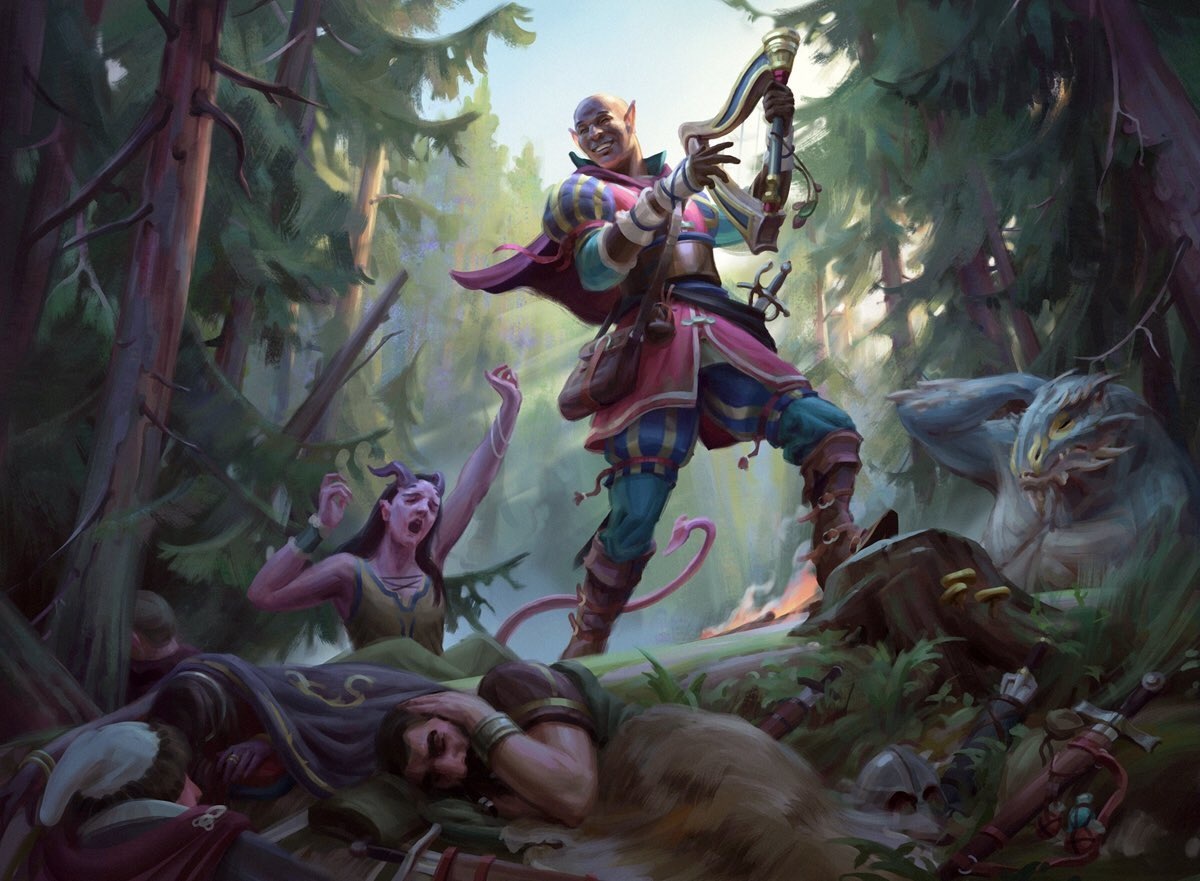




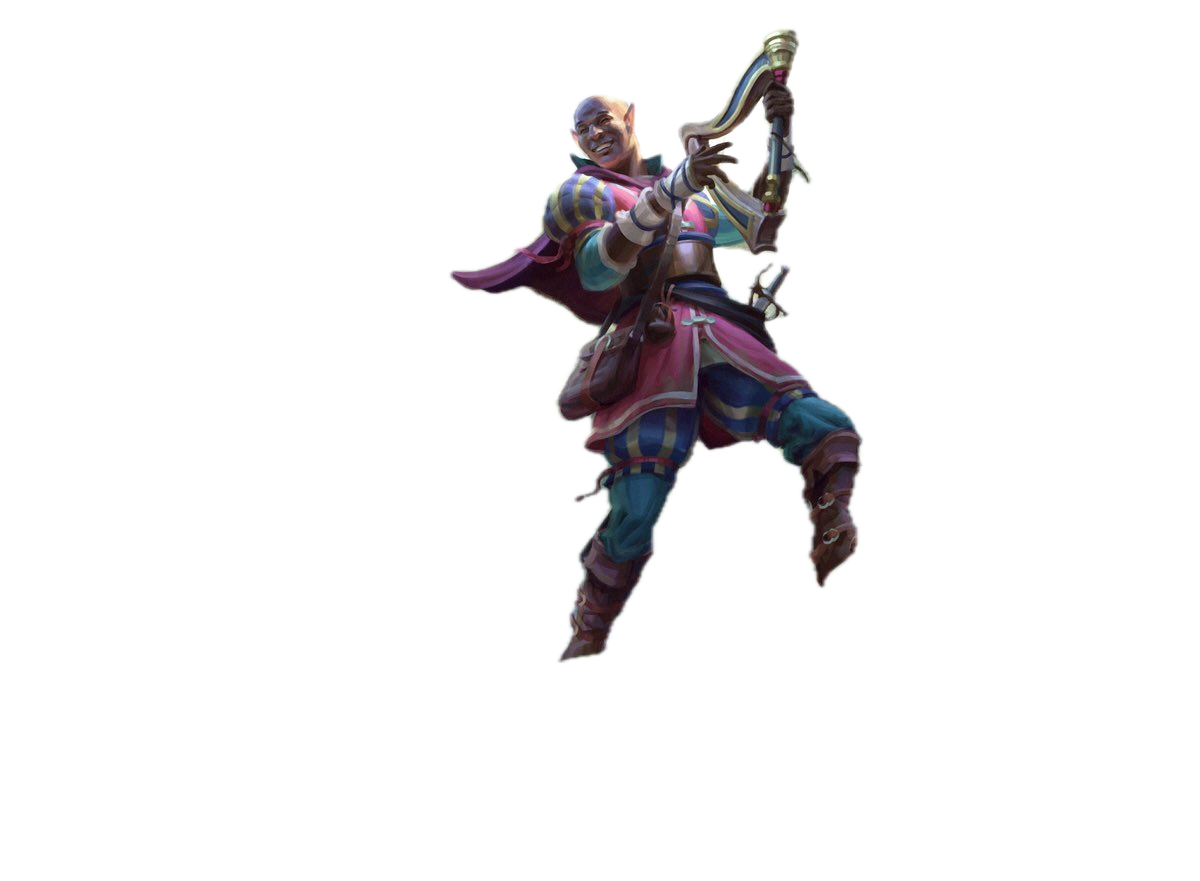


Loremaster
The Bards known as Loremasters travel the world collecting bits of knowledge about everything they can. From scholarly tomes and religious texts to tavern tales and superstitions of local peasants, these travelers value stories of all kinds. The loyalty of these Bards lies above all in the pursuit of beauty and truth, not in fealty to a monarch or the tenets of a deity.
Bardic Lore
3rd-level Loremaster Tradition feature
Your knowledge of various traditions, magical and mundane exceeds your fellow Bards. When you learn Magical Secrets spells, you learn three spells of that level instead of two.
You also gain proficiency in one of the following skills of your choice: Arcana, History, Medicine, Nature, or Religion. Whenever you make an ability check with any of these skills, you can use Charisma in place of their normal ability score, representing local traditions and lore you've gleaned.
Jack of All Trades
3rd-level Loremaster Tradition feature
In your travels you have learned much about many things. You add half your proficiency bonus, rounded down, to any ability check that doesn't include your proficiency bonus.
Potent Performer
5th-level Loremaster Tradition feature
Whenever you cast a Bard spell that deals
damage, or restores hit points to a creature,
you gain a bonus to the damage roll or hit points
restored equal to one roll of your Bardic Inspiration Die.
Moreover, whenever you roll a Bardic Inspiration Die, you can roll the Die twice and choose which result you use.
Peerless Skill
11th-level Loremaster Tradition feature
Your wide-ranging knowledge and talents with bardic magic allow you to turn your failures into success. When you miss with an attack roll, or fail an ability check or saving throw, you can expend a Bardic Inspiration Die, roll it, and add it to the result of your roll, possibly turning failure into success.
Wondrous Success
15th-level Loremaster Tradition feature
Your skill with bardic magic is beyond reproach. When you add a Bardic Inspiration Die to a creature's attack roll, ability check, or saving throw you can invoke a Wondrous Success to replace its d20 roll with your Bard level. If this roll causes it to find success, it does so in an overtly magical way.
Once you use your Bardic Inspiration in this way you must finish a short or long rest before you can do so again.
Wondrous Ability Checks
With their Wondrous Success feature a Loremaster Bard can allow a creature to almost automatically succeed on an ability check once per rest.
Remember, characters should only make ability checks when the DM calls for an ability check, and ability checks should not be called for unless there is a chance, however small, of a successful result.
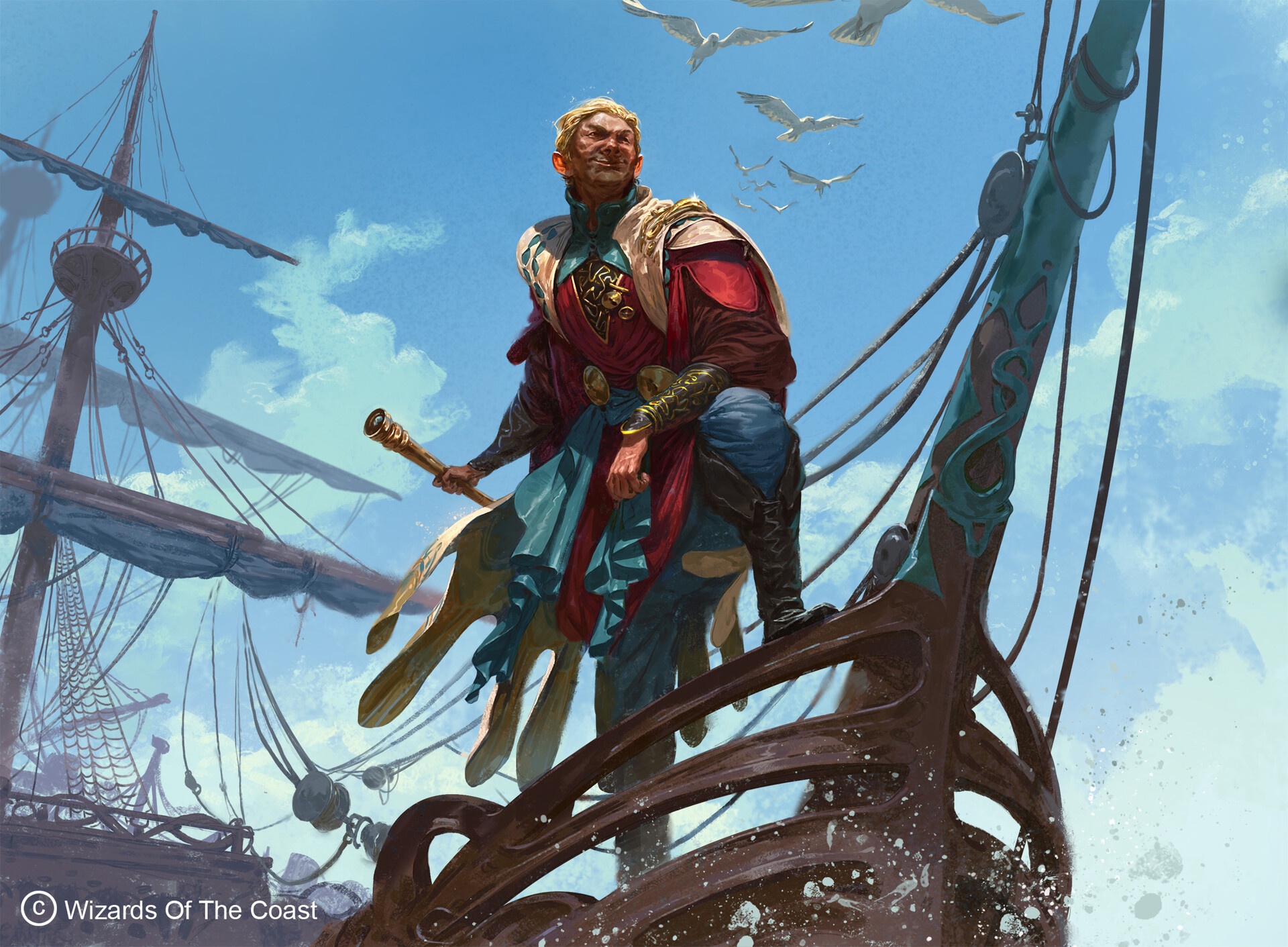


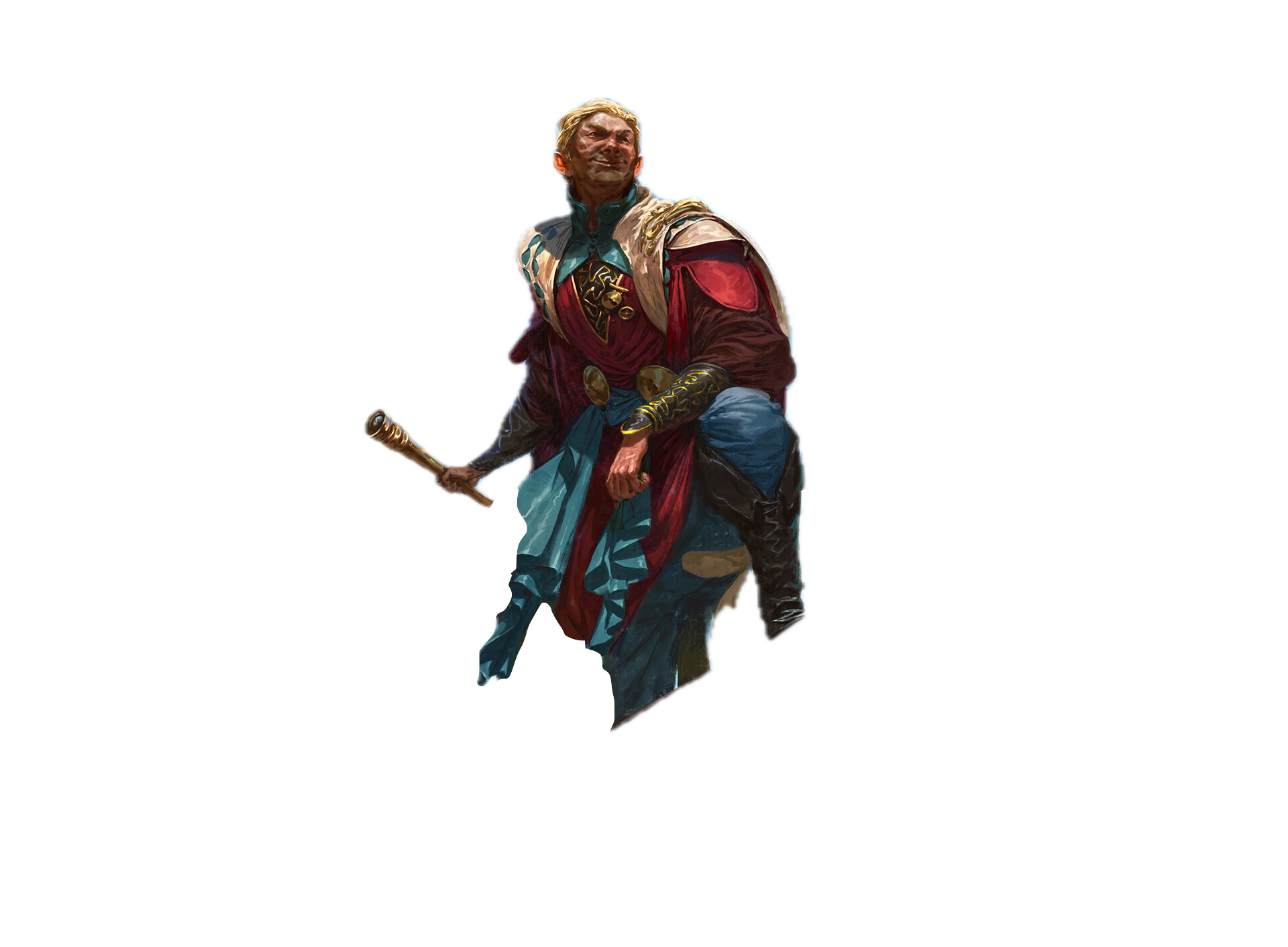


Skald
Bards of this Tradition are no strangers to adventure. Unlike other Bards who sing the tales of heroes from ages past, Skalds seek to inspire new legends. They seek out bands
of adventurers and potential heroes, hoping to use their magic to inspire them to great feats worthy of legend.
In battle, Skalds are found on the front lines, with
a sword in hand and song on their lips.
Bardic Warrior
3rd-level Skald Tradition feature
In your desire to stand amongst the heroes of legend you
have learned to fight. You gain proficiency with all martial
weapons, shields, and heavy armor. You can also use your weapon or shield as a spellcasting focus for Bard spells.
Your combat training has also made you heartier than
most Bards. Your maximum hit points increase by 3, and
they increase by 1 again each time you gain a Bard level.
Combat Inspiration
3rd-level Skald Tradition feature
You use your bardic magic to inspire feats of valor in battle. When you add a Bardic Inspiration Die to another creature's weapon attack roll and its attack hits, it also adds one roll of your Bardic Inspiration Die to the damage roll of its attack.
Also, when you make a weapon attack roll and miss, you can expend one Bardic Inspiration Die, roll it, and add the result to your roll, possibly turning your miss into a hit.
Extra Attack
5th-level Skald Tradition feature
You can attack twice, instead of once, whenever you take the Attack action. Moreover, if you use your action to cast a Bard spell or to perform a Chord of Power, you can make a single weapon attack as a bonus action on that turn.
Gallant Charge
5th-level Skald Tradition feature
Your heroic presence rallies allies to charge into battle. As
a reaction when you roll initiative, you can expend a Bardic Inspiration Die. Creatures of your choice within 30 feet that can hear you gain a bonus to their initiative roll equal to one
roll of your Bardic Inspiration Die.
Ringing Strikes
11th-level Skald Tradition feature
Your weapon attacks are empowered with your signature bardic magic. Whenever you hit with a weapon attack you deal bonus thunder damage on hit equal to one roll of your Bardic Inspiration Die.
When you make a weapon attack, you can choose to forgo this bonus damage to make your attack with advantage.
Heroic Inspiration
15th-level Skald Tradition feature
Your words motivate others to ever greater feats of gallantry. When you add a Bardic Inspiration Die to another creature's attack roll, ability check, or saving throw, you can also grant that creature temporary hit points equal to your Charisma modifier (minimum of 1 temporary hit point).
While a creature has temporary hit points from this feature its walking speed increases by 10 feet.
Why the Alternate Bard?
Of all the Alternate Classes that I have released, the Alternate Bard has undergone the biggest changes. While the loss of full Spellcasting progression may seem extreme, the choice to make the Bard class a "half-caster" that maxes out at 5th-level spell slots gives it significantly more mechanical "room" so it can feel like a Bard and not a musical Wizard.
This Alternate version of the Bard class places a greater emphasis on a Bard's ability to support its allies through more reliable Bardic Inspiration, the new Chords of Power feature, and a new version of Magical Secrets allowing them to customize a spell list to fit the needs of any adventuring party.
I hope you enjoy my take on the Bard!
~laserllama
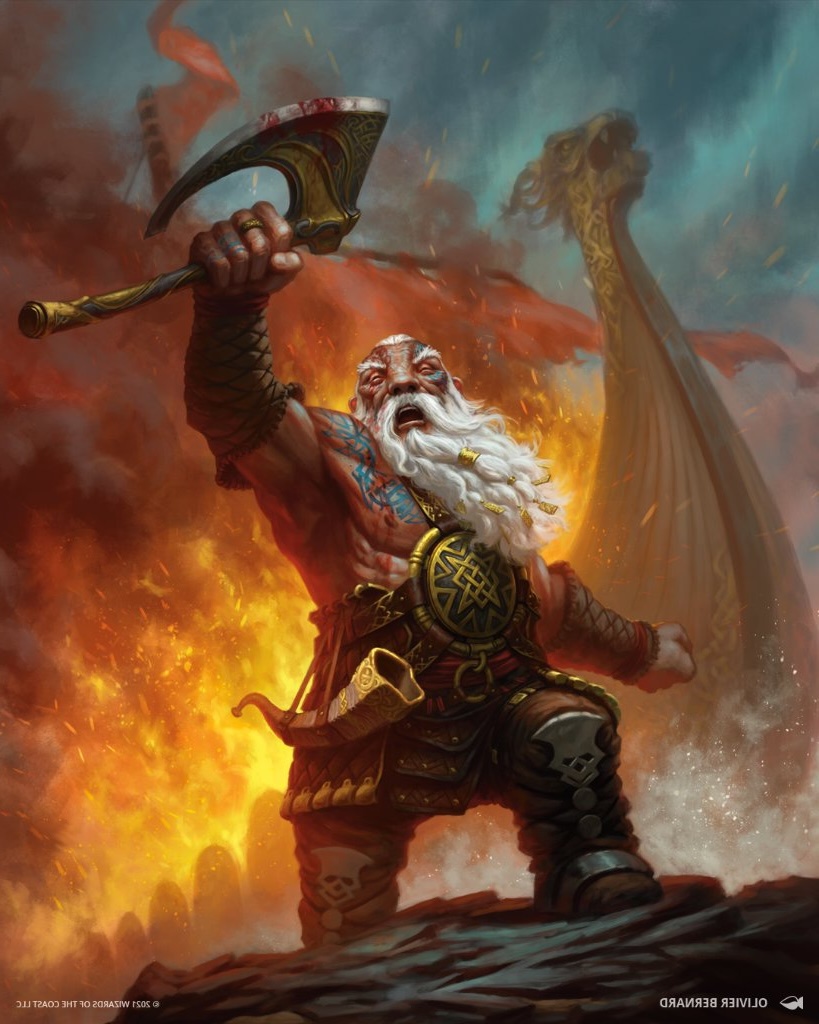


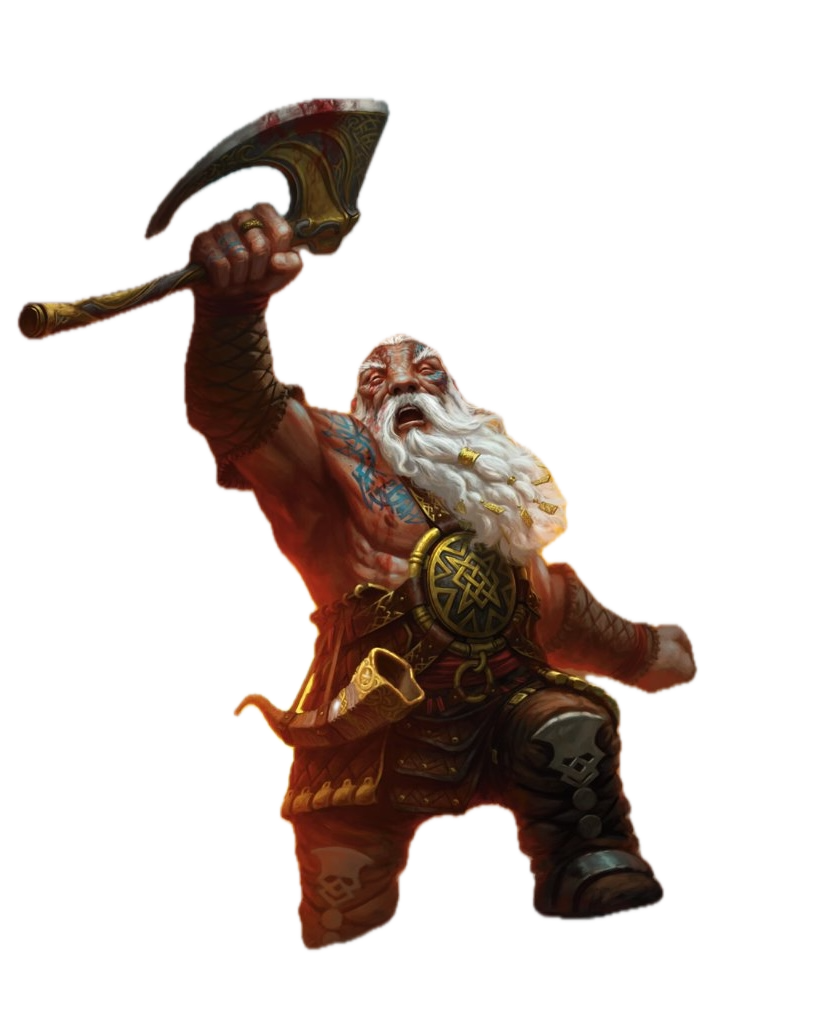


Chords of Power
Below are the Chords of Power available for Bards to learn.
If a Chord has a Bard level prerequisite, you can learn it at the same time that you meet its prerequisite. Every Chord uses your Bard Spell save DC and Bardic Inspiration Die.
If a Chord of Power requires your concentration, it uses the same rules as if you were concentrating on a spell.
Inspiring Melody
As an action, you expend any number of Bardic Inspiration Dice (up to your Charisma modifier), and choose a creature who can hear you within 30 feet for each Bardic Inspiration Die spent. These creatures gain temporary hit points equal
to the maximum roll of your Bardic Inspiration Die.
Enthralling Performance
After you perform for an audience for a least 1 minute, you can expend one Bardic Inspiration Die to force creatures of your choice within 90 feet who listened to this performance to make a Wisdom saving throw. On a failed save, creatures are charmed by you for 1 hour, or until you or your allies do anything hostile to a member of the audience. On a success, creatures are unaware you attempted to charm them.
While charmed, creatures idolize you and will do anything you ask short of risking their lives or fighting for you.
Irritating Tune
As an action, you expend one Bardic Inspiration Die to begin a performance that lasts until the beginning of your next turn. Creatures of your choice who are within 30 feet and can hear you at the beginning of their turn must succeed on a Wisdom saving throw or have disadvantage on attack rolls against all creatures other than you until the end of this performance.
Performing this Chord of Power requires concentration.
Lay of Alacrity
As an action, you expend one Bardic Inspiration Die to begin a performance that lasts until the beginning of your next turn. Creatures of your choice who are within 30 feet and can hear you at the beginning of their turn gain a bonus to their speed equal to five times your Charisma modifier in feet (minimum of 5 feet) which lasts until the end of their current turn.
Performing this Chord of Power requires concentration.
Song of Rest
During the course of a short rest you can perform to soothe your weary allies. Expend any number of Bardic Inspiration Dice and roll them. You restore a total number of hit points equal to the result of this roll, distributed among creatures who are participating in this short rest and can hear you.
Once a creature benefits from this Chord of Power it can't benefit from it again until it finishes a long rest.
Countersong
Prerequisite: 6th-level Bard
When you hear a creature within 30 feet cast a spell, you can use your reaciton expend a Bardic Inspiration Die, roll it, and produce a chaotic sound, attempting to disrupt the spell. The caster must make an ability check with its spellcasting ability, and add the level of the spell it was casting to the result.
If the result of its ability check is less than 10 + your Bardic Inspiration Die roll, the creature's spell fails and has no effect.
Disorienting Dirge
Prerequisite: 6th-level Bard
As an action, you expend one Bardic Inspiration Die to begin a performance that lasts until the beginning of your next turn. Creatures of your choice who are within 30 feet and can hear you have disadvantage on Wisdom saving throws and saving throws to maintain their concentration.
Performing this Chord of Power requires concentration.
Hymn of Courage
Prerequisite: 6th-level Bard
As an action, you expend one Bardic Inspiration Die to begin a performance that lasts until the beginning of your next turn. Creatures of your choice within 30 feet who can hear you are immune to the charmed and frightened condition. A creature who is charmed or frightened when it hears this performance is not affected by the condition as long as it can hear you.
Performing this Chord of Power requires concentration.
Song of Confidence
Prerequisite: 6th-level Bard
As an action, you expend one Bardic Inspiration Die to begin a performance that lasts until the beginning of your next turn. Creatures of your choice within 30 feet who can hear you are considered proficient in all saving throws for the duration.
Performing this Chord of Power requires concentration.
Heroic Anthem
Prerequisite: 10th-level Bard
As an action, you expend one Bardic Inspiration Die to begin a performance that lasts until the beginning of your next turn. Creatures of your choice within 30 feet who can hear you add your Charisma modifier (minimum of +1) to the first damage roll they make before the start of your next turn.
Performing this Chord of Power requires concentration.
Confounding Canticle
Prerequisite: 10th-level Bard
As an action, you expend one Bardic Inspiration Die to begin a performance that lasts until the beginning of your next turn. Creatures of your choice who are within 30 feet and can hear you at the beginning of their turn must succeed on a Wisdom saving throw, or until the start of your next turn their speed is halved, they can't take reactions, and they have disadvantage on all ability checks and attack rolls.
Performing this Chord of Power requires concentration.
Mythic Anthem
Prerequisite: 18th-level Bard
As an action, you expend one Bardic Inspiration Die to begin a performance that lasts until the beginning of your next turn. Creatures of your choice within 30 feet who can hear you are resistant to all damage from spells and magical effects. This performance immediately ends if you move from your space.
Performing this Chord of Power requires concentration.
Legendary Chord
Prerequisite: 18th-level Bard
As an action, you expend any number of Bardic Inspiration Dice (up to your Charisma modifier), and choose a creature who can hear you within 30 feet for each Bardic Inspiration Die spent. These creatures can immediately make a single weapon attack or cast a spell of 1st-level or lower.

Additional Traditions
Included below are five additional Traditions based on official options for the Bard class originally presented in Xanathar's Guide to Everything and Tasha's Cauldron of Everything:
| Official College | Bardic Tradition |
|---|---|
| Swords | Blade |
| Whispers | Conspirator |
| Eloquence | Counselor |
| Glamour | Mesmer |
| Creation | True Singer |
Blade
Known simply as Blades, the Bards that follow this Tradition are famous for their wondrous, yet deadly performances that incorporate bladed weapons. Far from mundane performers, these Bards use their skill with blades to find employment as duelists, vigilantes, and sometimes even turn to adventuring.
Elegant Duelist
3rd-level Blade Tradition feature
You gain proficiency with scimitars, and you can use melee weapons as the spellcasting focus for your Bard spells.
You also gain proficiency in Performance, and whenever you would make a Charisma (Performance) check, you can make a Dexterity (Performance) check that incorporates a deadly bladed weapon you are proficient with instead.
Fighting Style
3rd-level Blade Tradition feature
You learn one of the Fighting Styles from the
following list. Whenever you gain a Bard level, you can replace this Fighting Style with another of your choice:
Classical Swordplay
While wielding a finesse weapon and no other weapons, you gain a +2 bonus to your attack rolls and a +1 to your Armor Class so long as you are not using heavy armor or a shield.
Dueling
When you are wielding a melee weapon in one hand and no other weapons, you gain a +2 bonus to damage rolls with it.
Dual Wielding
While two-weapon fighting, you make your off-hand weapon attack as part of your Attack action instead of a bonus action, and you add your ability modifier to the damage of this attack.
When you do, you cannot also make a bonus action attack.
Featherweight Fighting
While you are unarmed or wielding only light weapons, and are not wearing medium or heavy armor, your walking speed increases by 10 feet, and you gain a +1 bonus to your damage rolls with light melee weapons and unarmed strikes.
Thrown Weapon Fighting
You can draw a weapon that has the thrown property as part of the attack you make with the weapon. Moreover, when you hit with a ranged weapon attack using a thrown weapon, you gain a +2 bonus to the damage roll of that attack.
Versatile Fighting
While wielding a single versatile weapon and no shield, you gain a +1 bonus to your attack rolls with that weapon. While
doing so, you can also use your bonus action to make a
single grapple or shove attack, or to take the
Use an Object action.
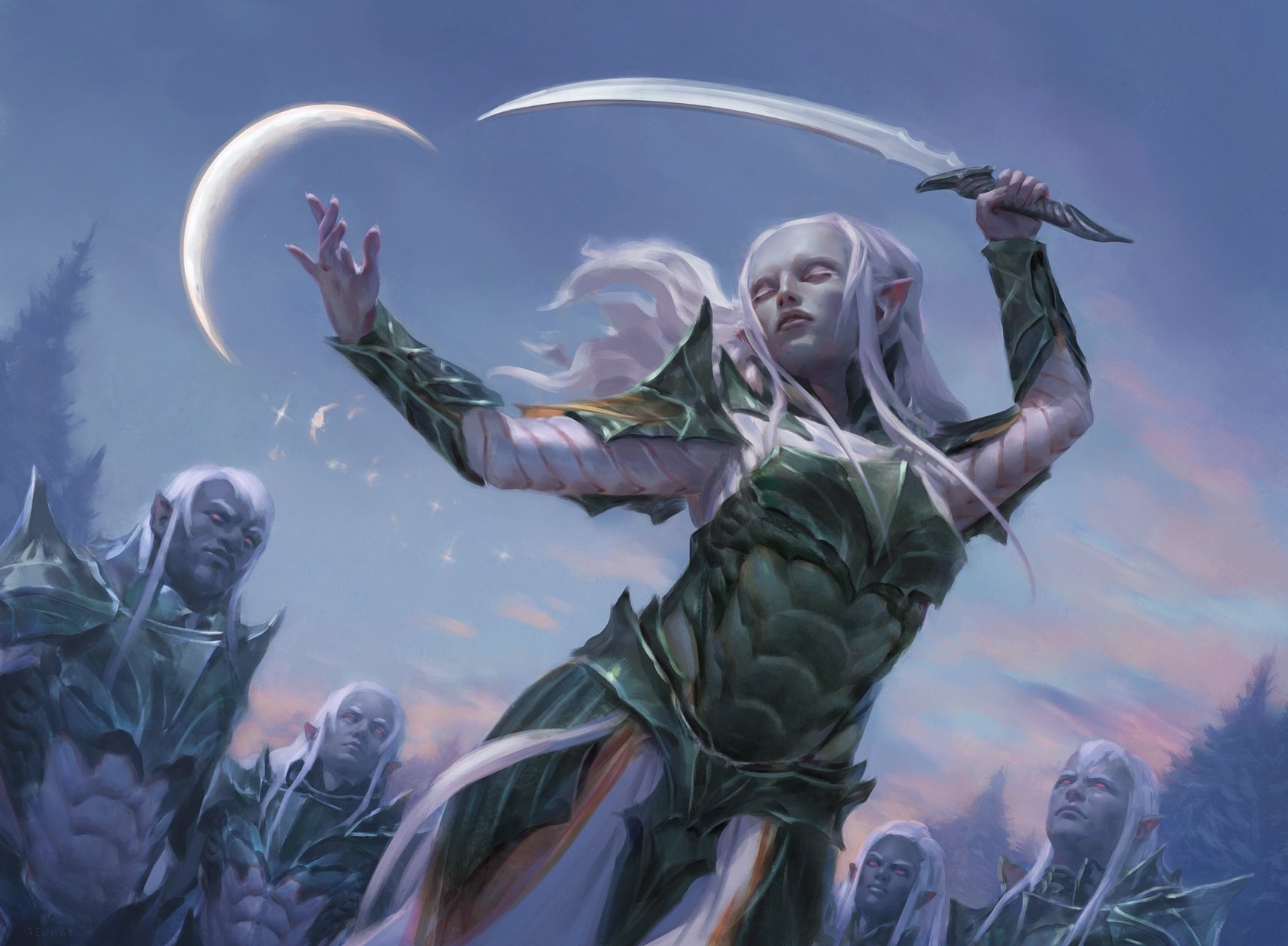

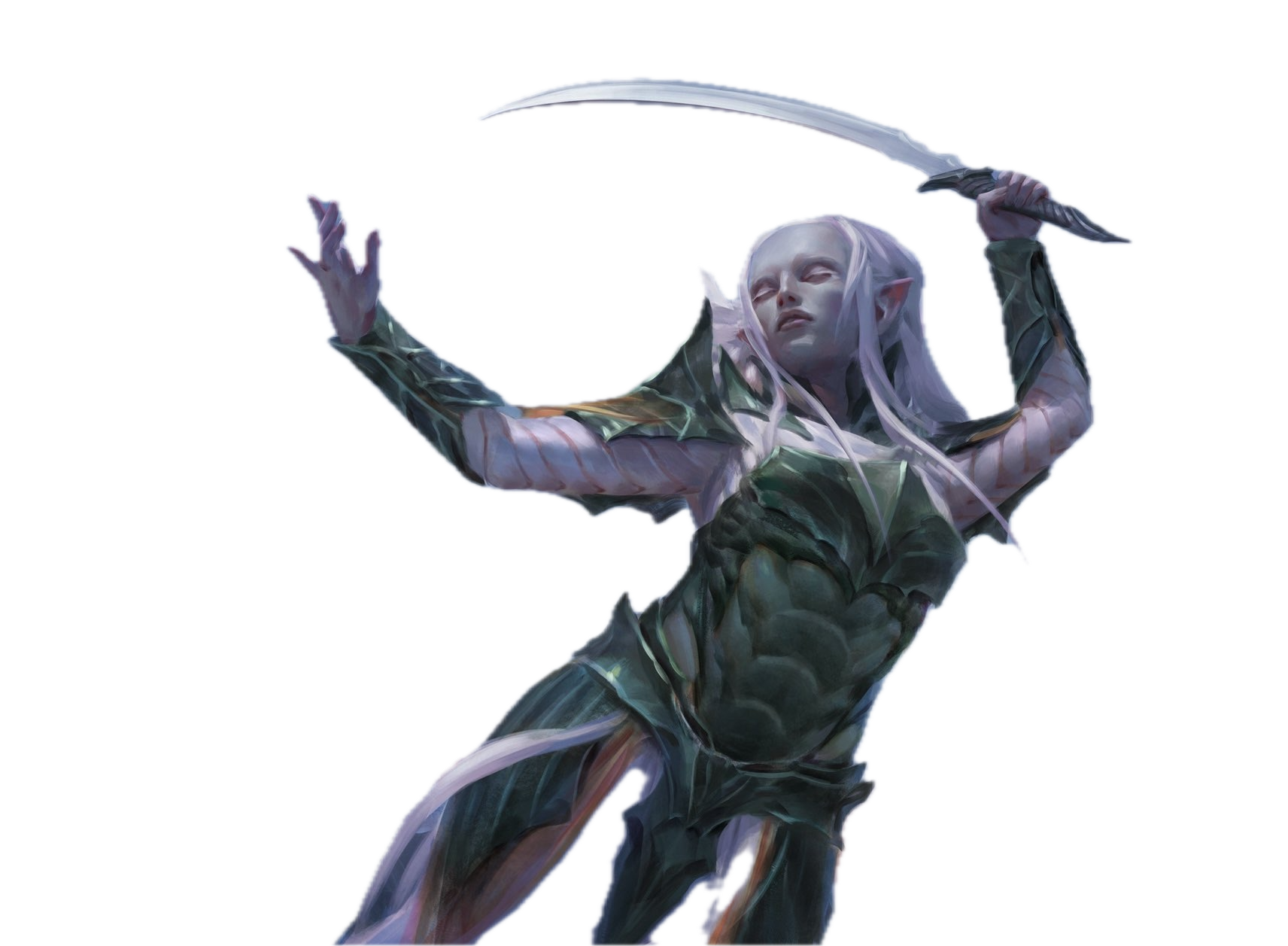
Blade Exploits
3rd-level Blade Tradition feature
You have studied various exploits to improve your deadly bardic performances. You gain the following features:
Exploits. You learn two Martial Exploits of your choice from those available to the Alternate Fighter. The Exploits Known column of the Blade Exploits table shows when you learn additional Martial Exploits of your choice.
To use an Exploit, you must expend one
Bardic Inspiration Die. You can only
use one Exploit per ability check,
attack, or saving throw. When one of
your Martial Exploit refers to an Exploit Die, you use
and roll your Bardic Inspiration Die in its place.
When you gain a level, you can replace one Exploit you know with another Martial Exploit of the same degree.
High Degree. Your Bard level limits the Exploits you are able to perform. This limit is reflected in the High Degree column of the Blade Exploits table below. In order to learn a Martial Exploit it must be equal to the High Degree for your Bard level on the Blade Exploits table below, or lower.
Saving Throws. If an Exploit requires a creature to make a saving throw, the DC is calculated as follows:
Exploit save DC = 8 + your proficiency bonus
+ your Dexterity modifier.
Blade Exploits
| Bard Level | Exploits Known | High Degree |
|---|---|---|
| 3rd | 2 | 1st |
| 4th | 2 | 1st |
| 5th | 3 | 1st |
| 6th | 3 | 1st |
| 7th | 4 | 2nd |
| 8th | 4 | 2nd |
| 9th | 4 | 2nd |
| 10th | 4 | 2nd |
| 11th | 5 | 2nd |
| 12th | 5 | 2nd |
| 13th | 5 | 2nd |
| 14th | 5 | 2nd |
| 15th | 6 | 3rd |
| 16th | 6 | 3rd |
| 17th | 6 | 3rd |
| 18th | 6 | 3rd |
| 19th | 7 | 3rd |
| 20th | 7 | 3rd |
Extra Attack
5th-level Blade Tradition feature
You can attack twice, instead of once, whenever you take the Attack action. Moreover, if you use your action to cast a Bard spell or to perform a Chord of Power, you can make a single
melee weapon attack as a bonus action on that turn.
Deadly Reprisal
11th-level Blade Tradition feature
You wield your chosen weapons with deadly precision. When a creature you can see hits you with a melee weapon attack, you can use your reaction to make one melee weapon attack against it with advantage.
Also, whenever you use an Exploit during your action, you can take the Dash or Disengage action as a bonus action.
Master of Blades
15th-level Blade Tradition feature
You are a master of your deadly yet beautiful craft. Once per turn, you can use an Exploit you know without expending a Bardic Inspiration Die, rolling a d6 in its place.
Finally, at the end of each long rest, you can spend time practicing your techniques and replace one Martial Exploit you know with another Martial Exploit of your choice.
Multiclassing & Exploits
Your martial skill depends partly on your combined levels in classes that learn Exploits, and partly on your individual levels in each class. If your group uses the optional rule for multiclassing and you learn Exploits from more than one class, you use the following rules: Alternate Martial Multiclassing.
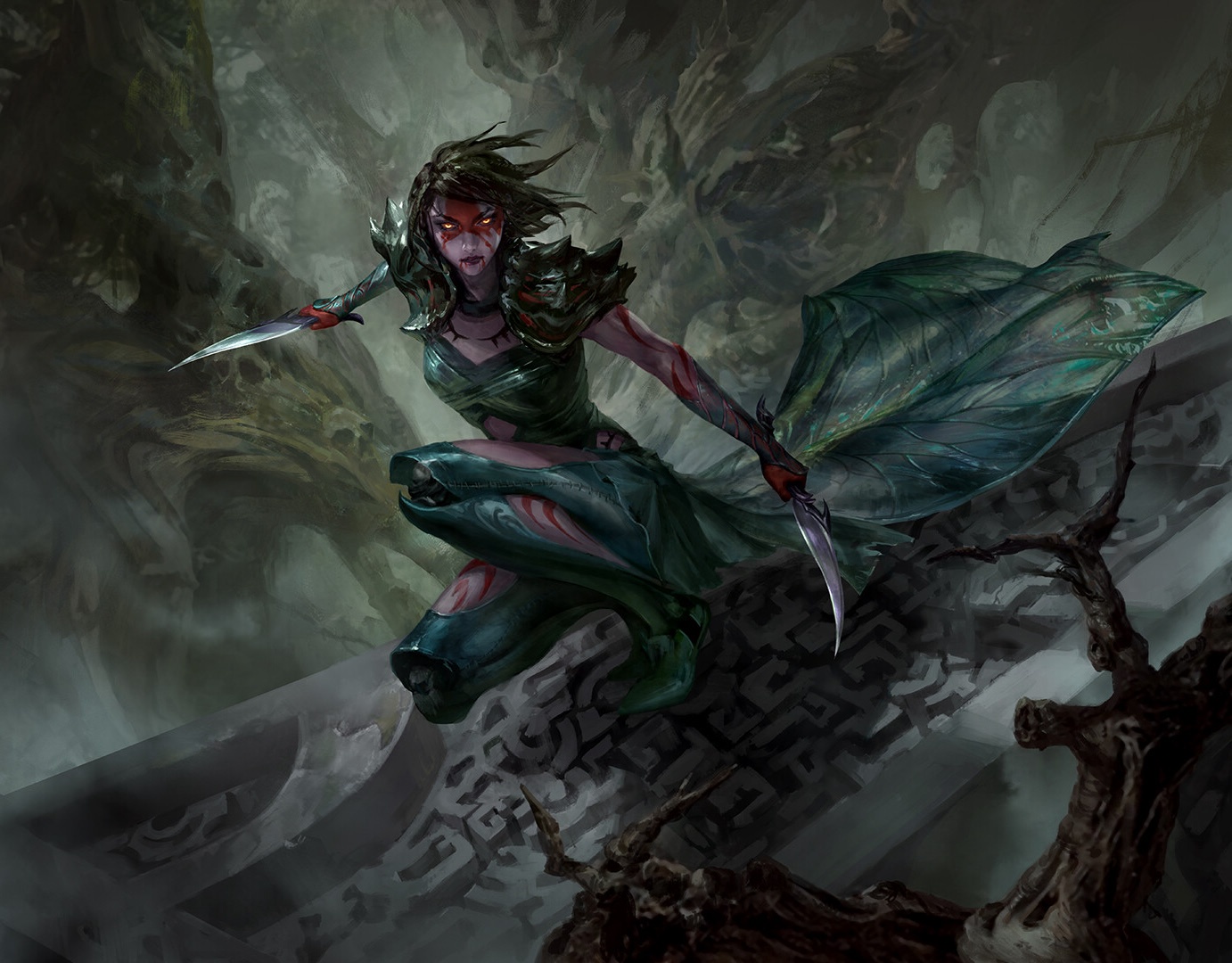


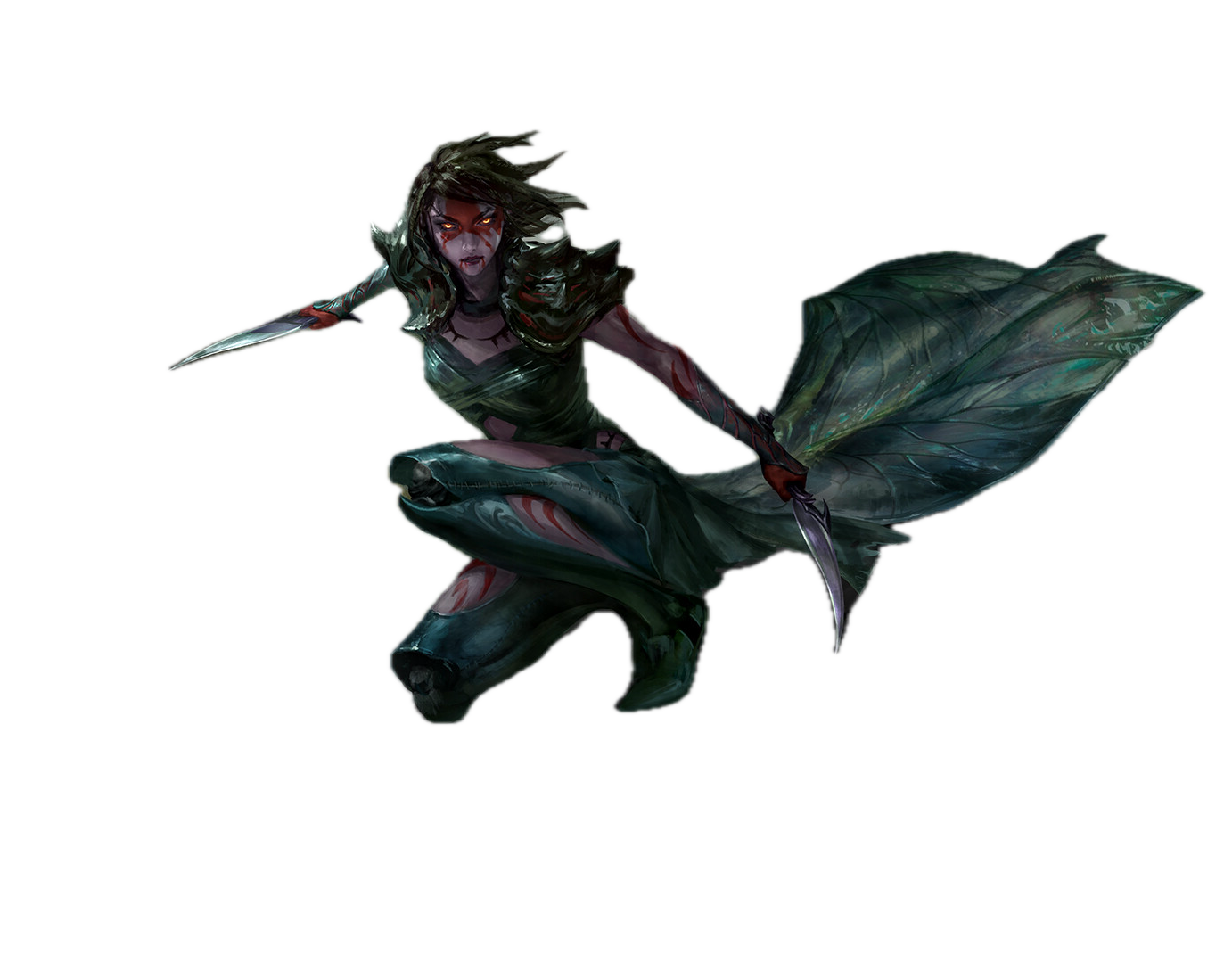


Conspirator
Conspirators use their skills and talents for their own benefit. They abuse the trust most have for Bards and work their way into positions where they can gather incriminating secrets to use as blackmail. These narcissistic Bards often masquerade as other Traditions, operating in secret to accumulate wealth and influence, and rarely, if ever, reveal their true motivations.
Cunning Influence
3rd-level Conspirator Tradition feature
You are an expert at manipulating creatures that make the mistake of trusting you. You gain proficiency in Deception and with two of the following tools of your choice: disguise kits, forgery kits, poisoner's kits, or thieves' tools.
Also, when you cast a Bard spell with a verbal component that only targets one creature within 10 feet, you can choose for only the target of your spell to hear its verbal component.
Psychic Assault
3rd-level Conspirator Tradition feature
You enhance your strikes with bardic magic to pierce body and mind. When you hit a creature with a weapon attack, you can expend one Bardic Inspiration Die to deal bonus psychic
damage equal to two rolls of your Bardic Inspiration Die.
Seeds of Terror
3rd-level Conspirator feature
You lace your speech with insidious bardic magic to inspire fear and paranoia. If you speak with a creature who can hear
and understand you for at least 1 minute, you can expend a
Bardic Inspiration Die to force it to make a Wisdom saving
throw against your Bard Spell save DC. On a failed save, for
the next hour it is frightened of a creature (your choice) who
you both can see and treats that creature as its enemy. This
effect ends if the frightened target or its allies are attacked
or damaged by you or your allies.
The target is unaware that you attempted to influence
its thoughts, regardless of the saving throw's result.
Devious Strike
5th-level Conspirator Tradition feature
You are as deadly with a blade as you are with words.
Once per turn when you hit a creature with a weapon
attack, you can deal bonus damage equal to one roll of
your Bardic Inspiration Die.
At 11th level this bonus damage becomes two rolls
of your Bardic Inspiration Die, and it becomes three rolls
of your Bardic Inspiration Die when you reach 15th level.
Stolen Visage
5th-level Conspirator Tradition feature
You can use sinister bardic magic to trap the Visage of other people who fall victim to your sinister schemes. Whenever a humanoid you can see dies within 30 feet of you, you can use your reaction to magically capture its Visage.
As an action, you can consume this Visage to transform to resemble that humanoid as it looked in life, gaining access to any memories and information that it would have shared with a casual acquaintance. The effect lasts for 1 hour, but you can end the Visage with an action. A suspicious creature can see through the Visage by making a successful Wisdom (Insight) check contested by your Charisma (Deception) check.
You can only have one Visage trapped at a time. When you trap another creature's Visage, any previous Visage is lost.
Mental Anguish
11th-level Conspirator Tradition feature
You weave your manipulative magic into every strike. When you use Psychic Assault, the creature must make a Wisdom saving throw against your Spell save DC or be frightened of you until the end of your next turn.
Also, when you hit a creature that is frightened of you with a weapon attack, you can end the frightened condition for it and turn your weapon attack into an automatic critical hit.
Sinister Manipulation
15th-level Conspirator Tradition feature
Your manipulative bardic magic knows no bounds. You can use Seeds of Terror as an action. On a failure, in place of the normal effect, you can choose to make the target believe you have knowledge of its darkest secret. If you do, it is charmed by you indefinitely, or until you or your allies act with hostility toward it, and it will secretly aid you in any way it can, short of directly fighting or risking its life for you.
You can only have one creature charmed in this unique way at a time, and attempting to charm another creature with this feature end this effect for the previous creature.
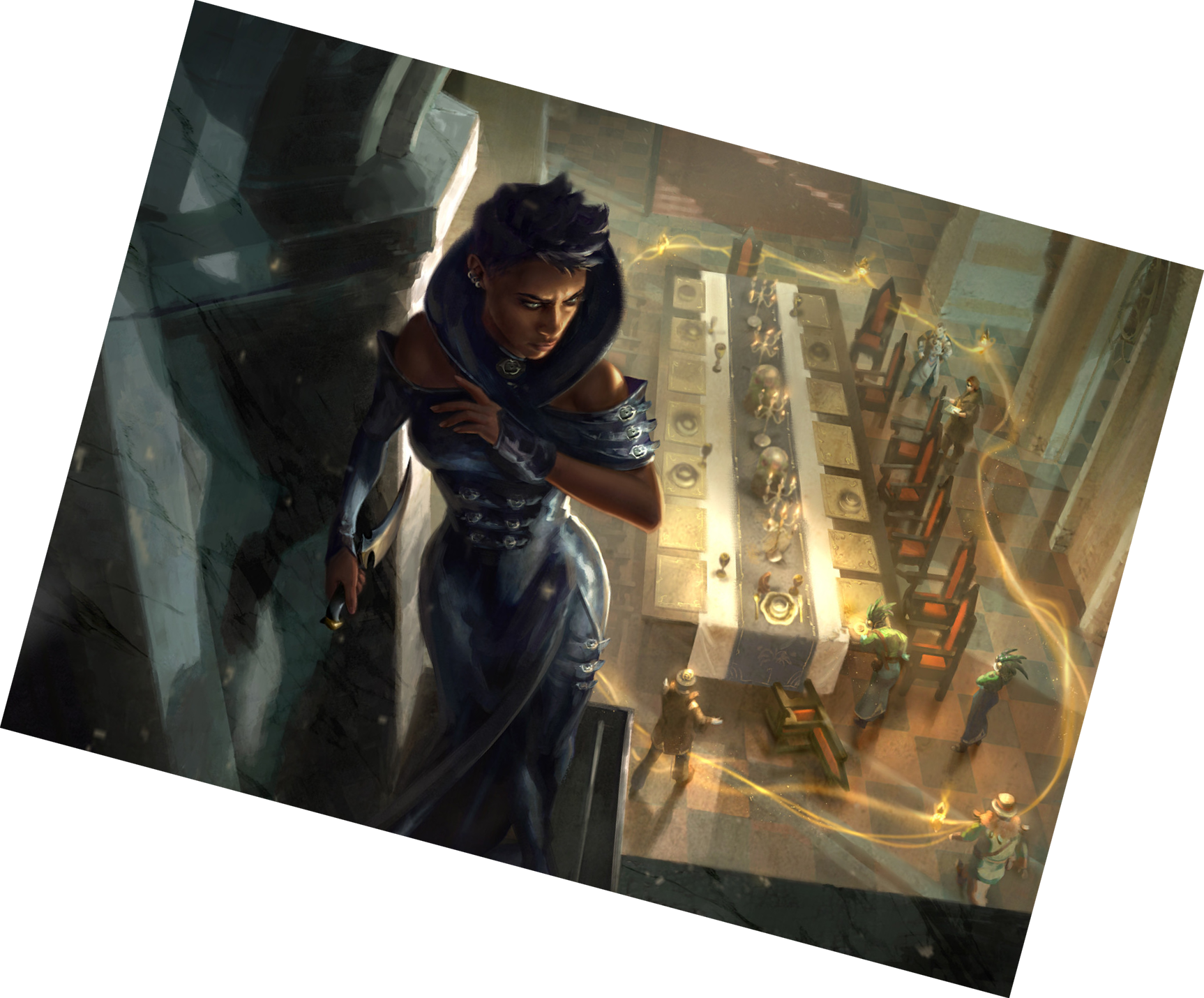



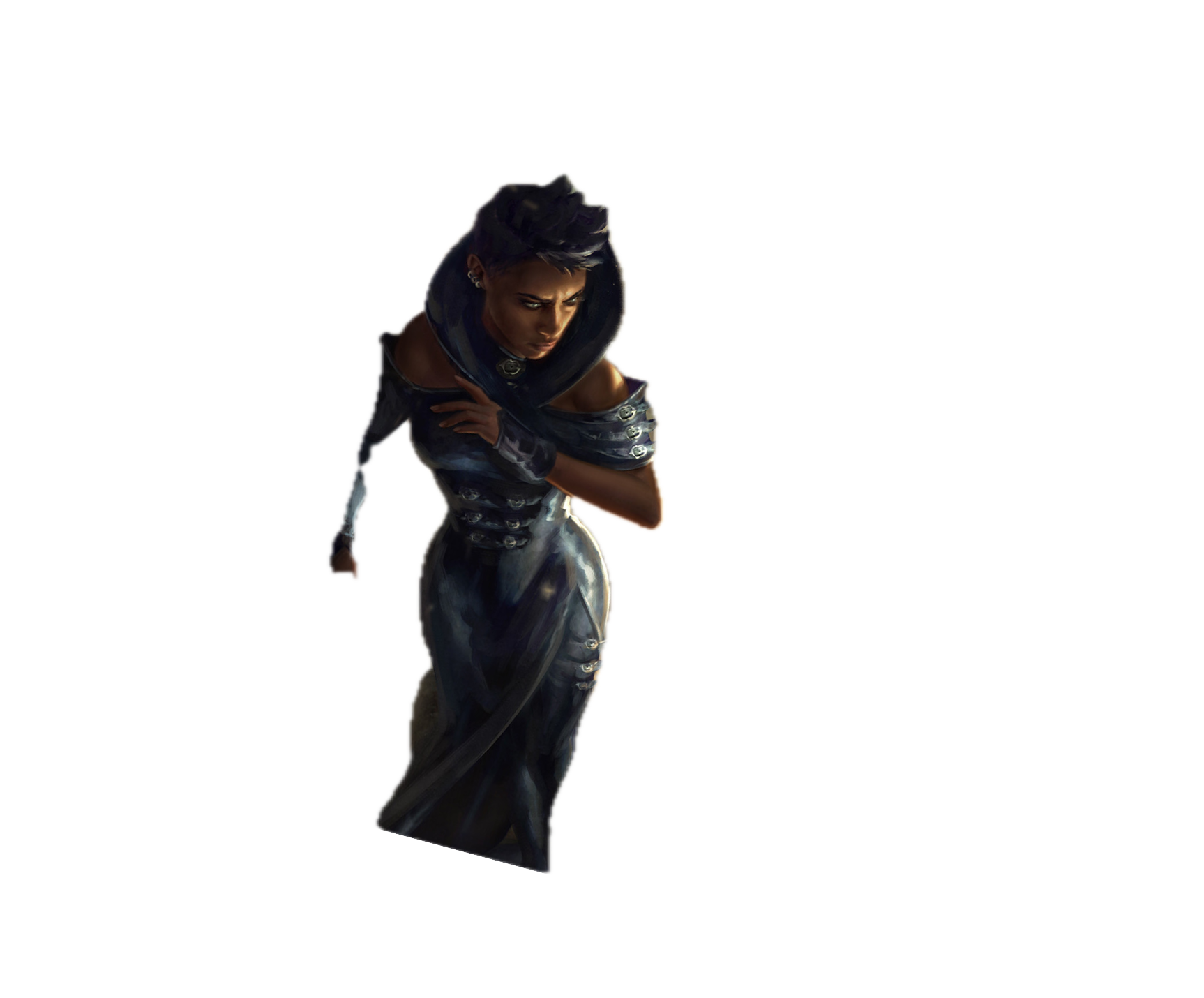


Counselor
Counselor Bards use their mastery over the Song of Creation to empower their speech. They traditionally take up roles as political advisors to the powerful, or master scholars of local law who represent those accused of crimes. They are known far and wide for their silver tongues and linguistic skills.
Counselors channel the Song of Creation through logical arguments and well-crafted speeches rather than music.
Bardic Counsel
3rd-level Counselor Tradition feature
Your bardic skill is focused on oratory skills and knowledge of local traditions. You gain proficiency in History, and when you make an Intelligence (History) check related to local law or tradition, you treat a d20 roll of 7 or lower as an 8.
You also gain proficiency in your choice of either Deception or Persuasion. If you are already proficient in the chosen skill you can add double your proficiency bonus to your roll.
Cutting Logic
3rd-level Counselor Tradition feature
Your confidence and way with words unsettles your foes and empowers the resolve of your allies. When a creature within 30 feet that can hear and understand you is forced to make a saving throw by a creature other than yourself, you can use your reaction to expend a Bardic Inspiration Die, roll it, and subtract the result from its saving throw. You must use this reaction before you know the saving throw's result.
Potent Advice
3rd-level Counselor Tradition feature
Your magic holds true even when your words
fail you. If you use your Bardic Inspiration
reaction and the creature still misses with
its attack roll, or fails its ability check or its
saving throw, your Bardic Inspiration Die
is not expended.
Confounding Logic
5th-level Counselor Tradition feature
You can lace your arguments with bardic magic to assault the minds of your enemies. As an action, you can force a creature that can hear and understand you within 30 feet to make an Intelligence saving throw against your Bard Spell save DC.
On a failed save, it takes psychic damage equal to a roll of your Bardic Inspiration Die, and until the beginning of your next turn it cannot take reactions and its speed is halved.
This psychic damage increases to two rolls of your Bardic Inspiration Die at 11th level, and three rolls at 15th level.
Elder Tongue
5th-level Counselor Tradition feature
As an action, you can infuse your speech with the Song of Creation itself so that any creature within 60 feet that can hear you does so as if you were speaking its native tongue.
This effect lasts for 1 hour, and in order for this to work on
a creature, it must be able to speak at least one language.
Once you use this feature you must finish a long rest before you can use it again. If you have no uses remaining, you can expend a spell slot of 2nd-level or higher to use it again.
Reliable Counsel
11th level Counselor Tradition feature
You always seem to recall the perfect fact or know just what to say at the right time. Whenever you make an Intelligence check to recall information, or you make Charisma check to convince a creature of something, you can replace your d20 roll with your Bard level.
Peerless Inspiration
15th-level Counselor Tradition feature
Your advice and reasoning have become so powerful that it
is indistinguishable from magic. When you use your Bardic Inspiration reaction, you can choose to use the maximum value of your Bardic Inspiration Die in place of rolling it.
You can use this feature a number of times equal to your Charisma modifier (a minimum of once), and you regain all
expended uses when you finish a long rest.
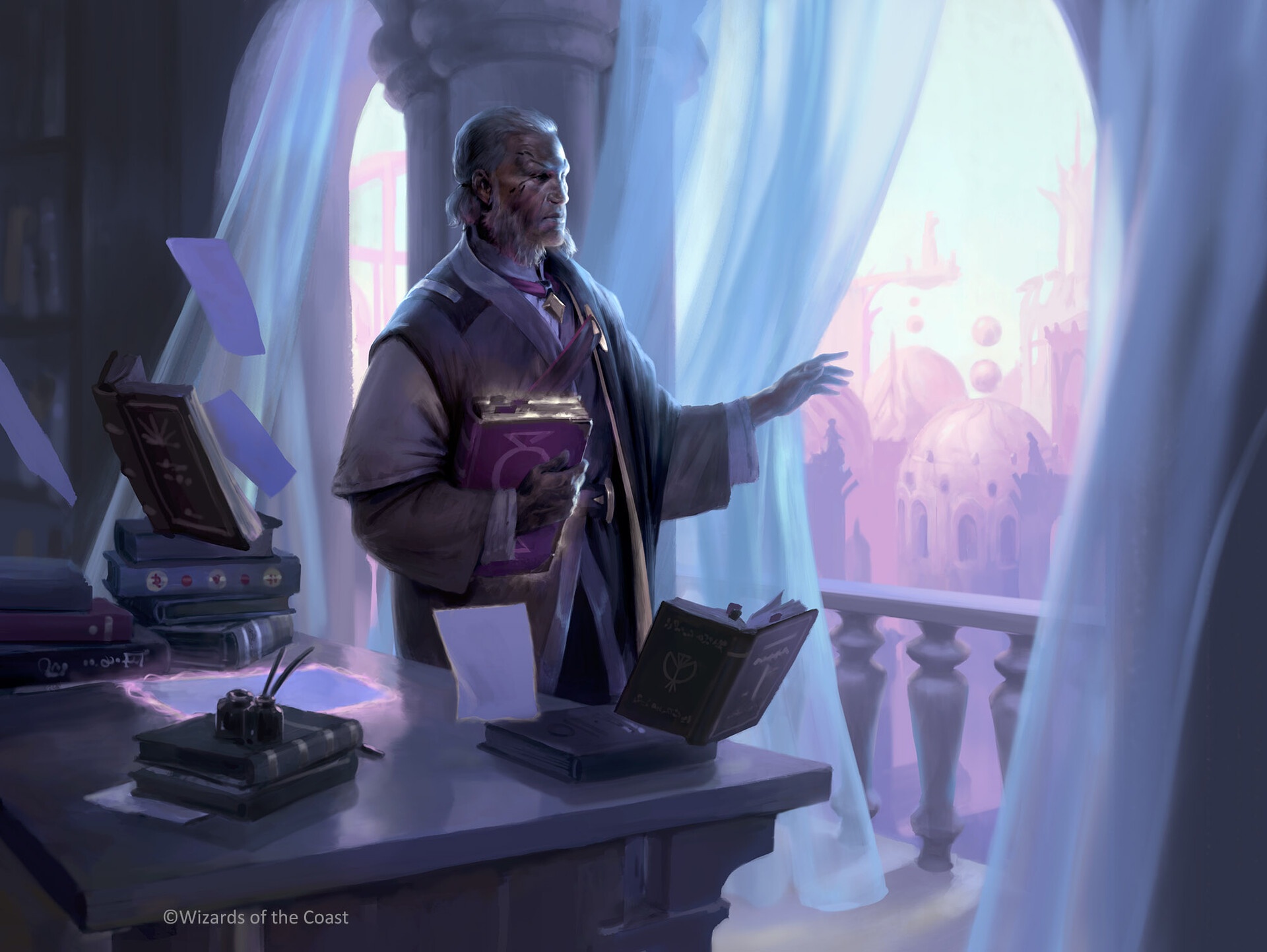


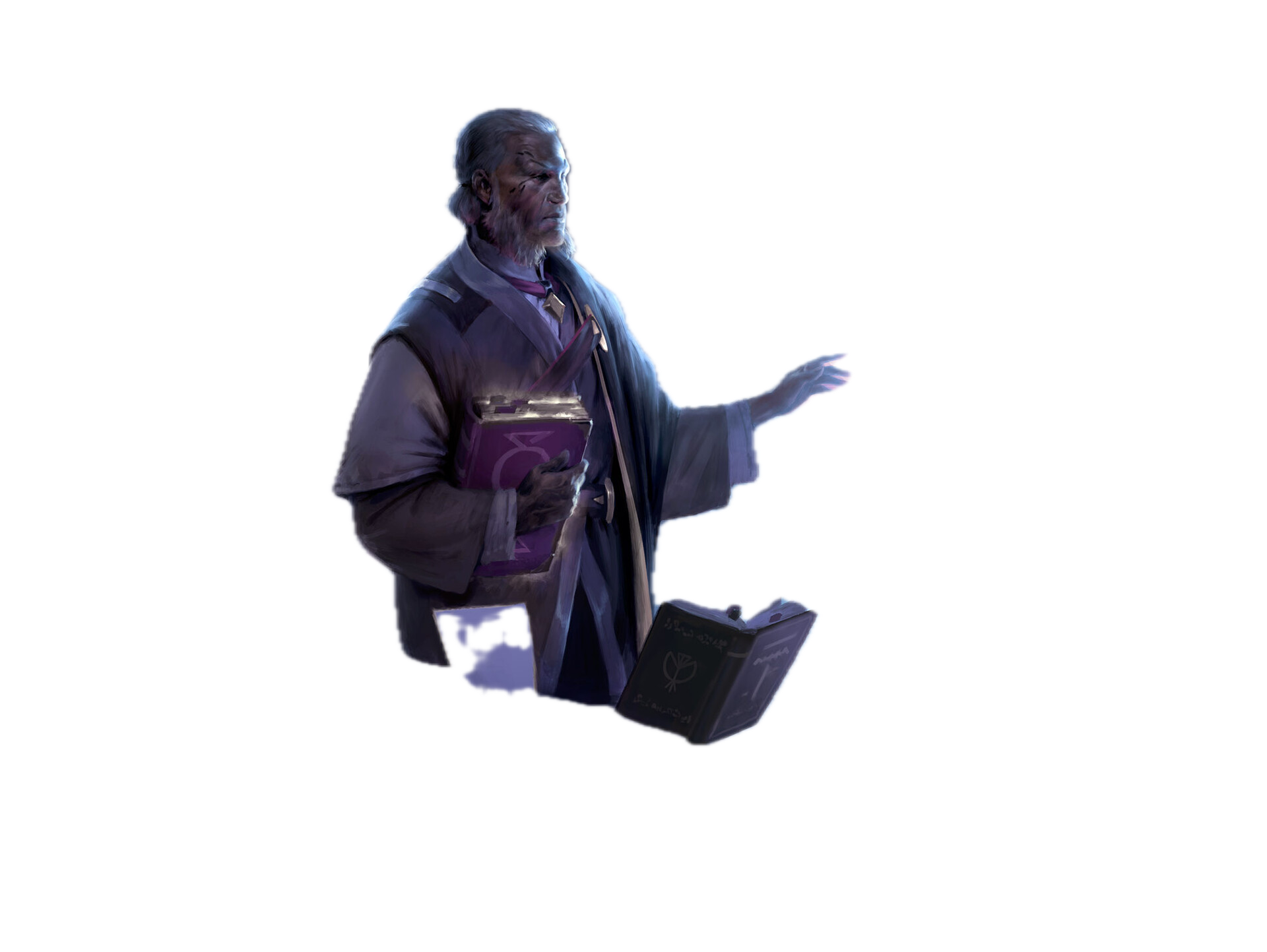
Mesmer
Often hailing from the wondrous courts of the Feywild, these glamorous Bards use their magic to beguile and captivate all who look upon them. Never to be upstaged, Bards known as Mesmers use their powerful personalities to manipulate and motivate their audiences to serve their goals.
Glamorous Mantle
3rd-level Mesmer Tradition feature
As a bonus action, you can expend a Bardic Inspiration Die, roll it, and momentarily enhance your beauty with magic. You then choose a number of creatures who can see you within 30 feet (up to your Charisma modifier) to gain temporary hit points equal to your Bardic Inspiration Die roll and move up to their speed without provoking opportunity attacks.
This magic then fades, and your normal beauty returns.
Mesmerizing Presence
3rd-level Mesmer Tradition feature
Your words are laced with seductive enchantment. You learn the friends, charm person, and command spells, but they do not count against your number of Cantrips or Spells Known.
Additionally, you always know Enthralling Performance, and it does not count against your total Chords Known, but you cannot replace it with another Chord of Power.
Otherworldly Visage
5th-level Mesmer Tradition feature
The otherworldly power of your bardic magic has increased. When you use Glamorous Mantle, it lasts for up to 1 minute, or until you are incapacitated or end it as a bonus action.
For the duration, you can use your bonus action on to produce one of the following effects targeting one
creature that can see or hear you within 30 feet:
- You cast charm person or command, without
expending a spell slot, but the effects of charm
person only last for the duration of your Mantle. - You grant a creature temporary hit points equal
to one roll of your Bardic Inspiration Die,
and it can move up its speed without
provoking opportunity attacks.
Reflexive Charm
5th-level Mesmer Tradition feature
You can distract attackers with
your whimsical bardic magics.
When a creature who can see
you hits you with an attack,
you can expend a Bardic
Inspiration Die as your
reaction, roll it, and add
the result to your Armor
Class against that attack.
When your Glamorous
Mantle is active, you can
use this reaction at will,
without expending a
Bardic Inspiration
Die to use it.
Mantle of Protection
11th-level Mesmer Tradition feature
Your performances exude an aura of protective bardic magic. When your Glamorous Mantle is active or while you perform a Chord of Power, you and creatures of your choice within 30 feet who can see or hear you gain the following benefits:
- They have advantage on saving throws to resist and end the charmed, frightened, paralyzed, or stunned condition.
- They can see through any illusion produced by a spell of
a level equal to your Charisma modifier or lower.
Moreover, when you roll initiative and are not surprised or incapacitated, you can use your reaction to expend a Bardic Inspiration Die to activate your Glamorous Mantle.
Majestic Presence
15th-level Mesmer Tradition feature
The powerful enchantment magics you use have given you a lovely, yet fierce appearance, much like the powerful Archfey. When you cast an enchantment spell on a creature that can see you within 30 feet, you can expend a Bardic Inspiration Die and force it to make its saving throw with disadvantage.
If your Glamorous Mantle is active, you can use this feature without expending your
Bardic Inspiration Die.
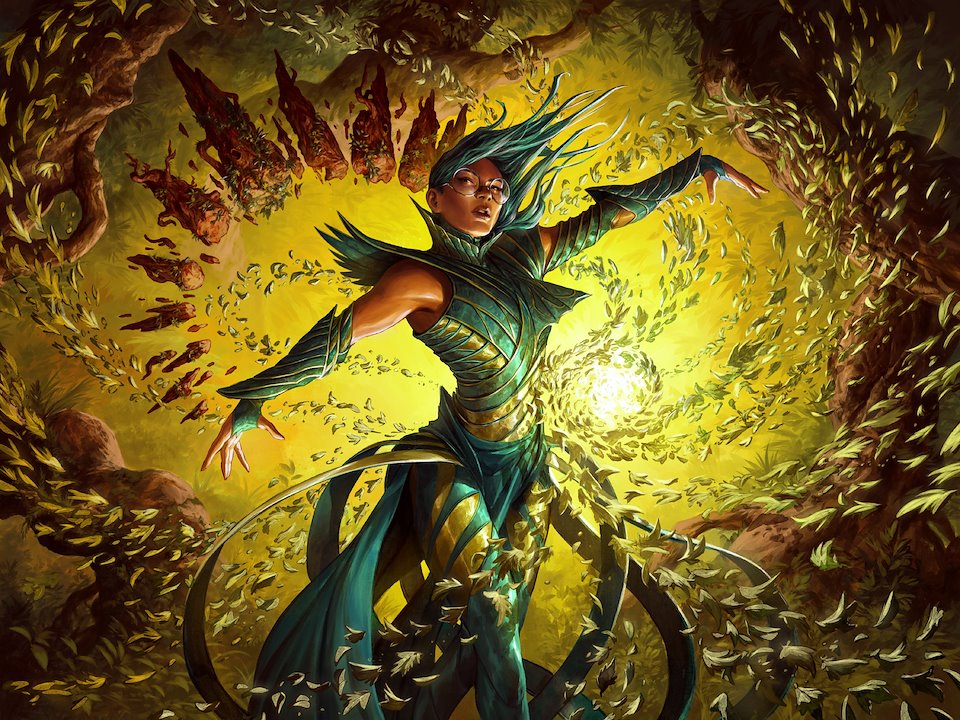


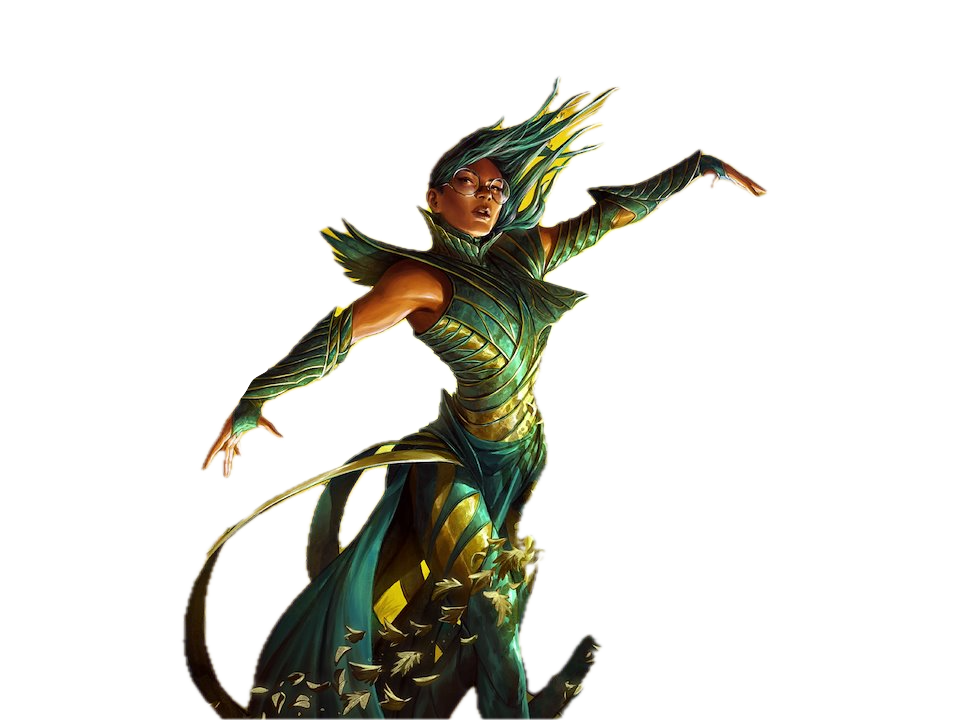
True Singer
While all Bards can wield the Song of Creation, those known as True Singers are said to have a unique understanding of it. This intimate knowledge of the song which created all things tends to make them eccentric, even more so than the average Bard, and drives them to take up residence in the wilderness, where they can be closest to creation in its purest form.
Creator's Song
3rd-level True Singer Tradition feature
Your understanding of the Song of Creation allows you to sing objects into being. As an action, you can sing and create one inanimate object no larger than your hand, in your hand or in an unoccupied space that can support it within 10 feet.
You must be familiar with any object you create this way, and to create an object that would require specific skills to craft you must be proficient in the corresponding tools.
The object is visibly magical, and produces faint pleasant music. It has a number of hit points equal to your Bard level, and its Armor Class is equal to your Charisma score. This object disappears after 1 hour, or when it is reduced to 0 hit points or you use this feature to create another object.
When you use this feature you can expend a spell slot to create larger objects, as determined by the slot expended:
| Spell Slot | Size |
|---|---|
| None | hand-sized |
| 1st | Tiny |
| 2nd | Small |
| Spell Slot | Size |
|---|---|
| 3rd | Medium |
| 4th | Large |
| 5th | Huge |
True Inspiration
3rd-level True Singer Tradition feature
Your intimate knowledge of the Song of Creation empowers your bardic abilities. Your Bardic Inspiration Dice are d6s.
At certain Bard levels, the size of your Bardic Inspiration Dice increase again: at 5th level (d8s), at 11th level (d10s), and finally at 17th level (d12s).
Dancing Creation
5th-level True Singer Tradition feature
Your understanding of the Song of Creation has deepened, allowing you to temporarily bring life to lifeless objects. As an action, you can sing life into a Large or smaller object that is not being worn or carried, awakening it as a Living Object.
Statistics. The Living Object uses the stat block of the same name on the following page. It uses your proficiency bonus (PB), Charisma modifier (CHA), and Spell save DC.
Combat. The Living Object obeys you completely and acts during your turn in combat. It will only take the Dodge action unless you use your bonus action to sing a command to it to take an action from its stat block or another action.
Duration. The Living Object remains animated in this way for 1 minute, but it instantly reverts to its lifeless state if you are incapacitated, if you use this feature to bring another object to life, or if it is reduced to 0 hit points. If the Object is reduced to 0 hit points it is destroyed and shatters to pieces.
Uses. Once you use this feature to animate an object. you must complete a long rest before you can use it again.
When you have no uses of this feature remaining, you can expend a spell slot of 1st-level or higher to animate another lifeless object as a Living Object.
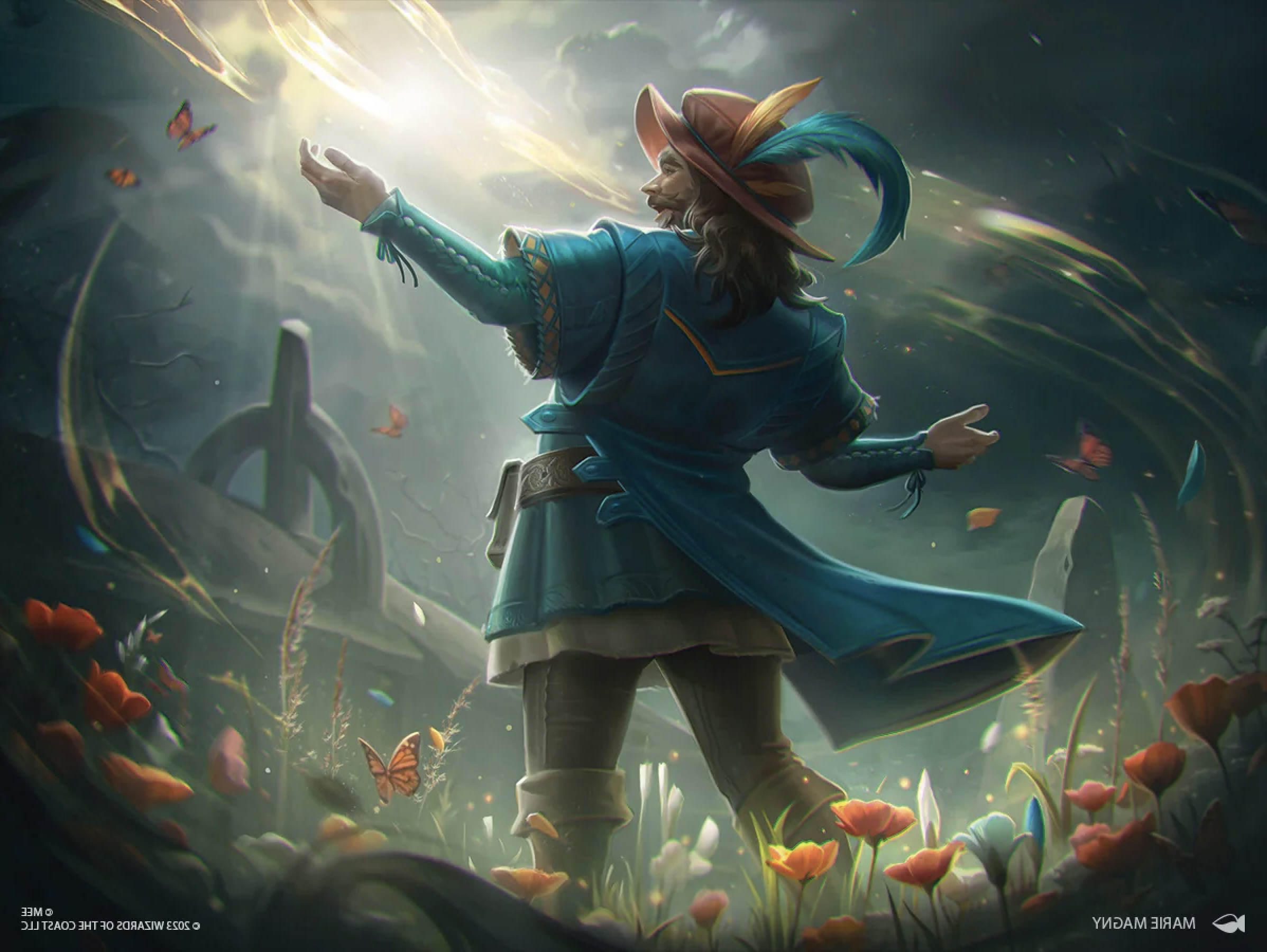


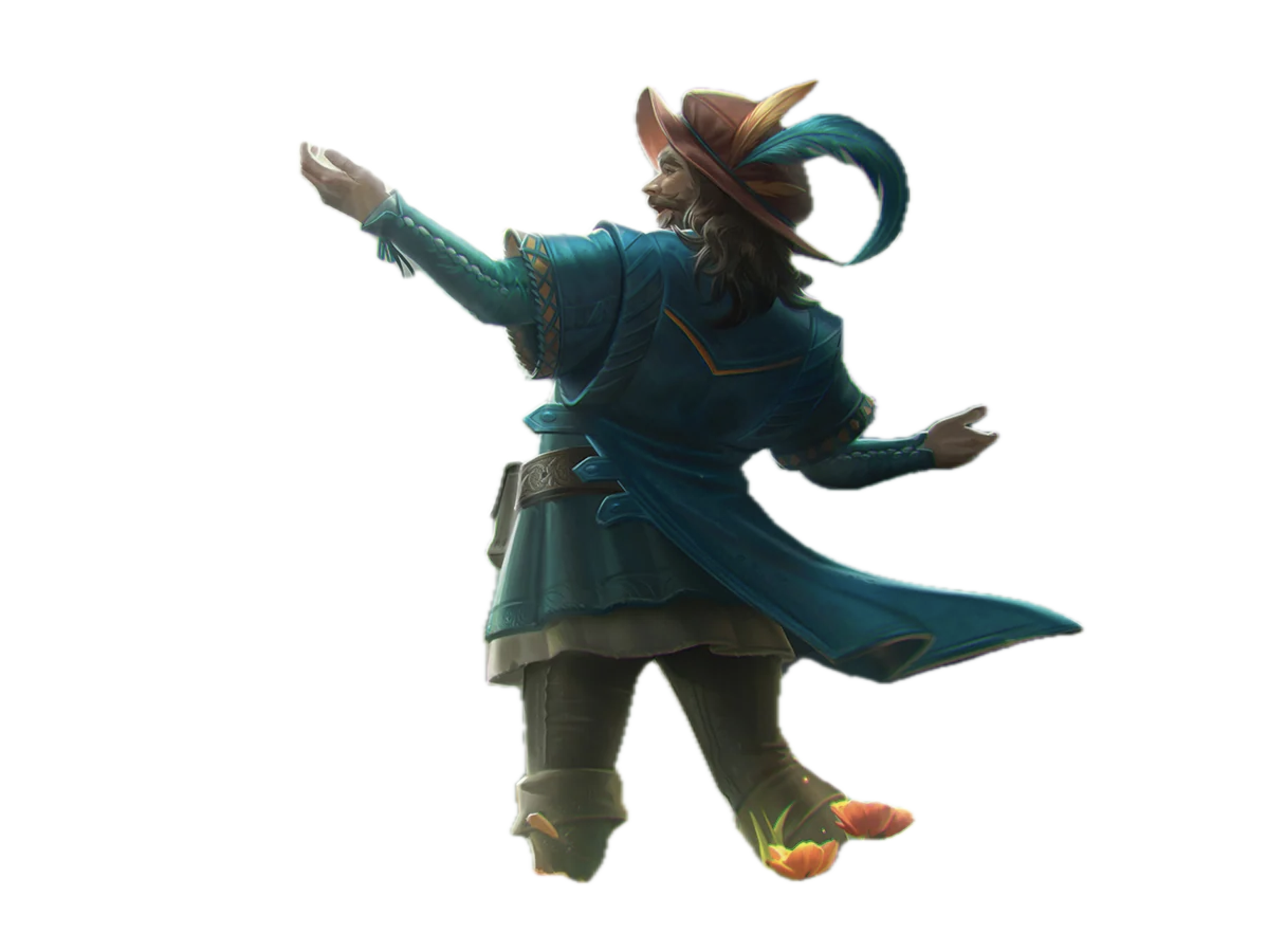
Moving Inspiration
5th-level True Singer Tradition feature
Your songs compel your allies to dance along to the Song of Creation with you. Whenever you use your Bardic Inspiration reaction, the target can move up to 15 feet without provoking opportunity attacks once it resolves the triggering attack roll, ability check, or saving throw.
Wondrous Chords
11th level True Singer Tradition feature
Your natural affinity with the Song of Creation allows you to channel it in ways impossible for other Bards. Whenever you perform a Chord of Power, you can perform two Chords you know to produce both effects simultaneously. However, you must expend a Bardic Inspiration Die for each as normal.
If you use Bardic Virtuoso to continue performing these Chords, you can continue both with one bonus action.
True Song
15th-level True Singer Tradition feature
You understand the Song of Creation as if you were present when it first brought the multiverse into existence. You learn the awaken spell, and you can cast it without expending the normal material component. Once you do so, you must finish 1d4 long rests before you can cast it in this way again.
Also, when you use Dancing Creation to create a Living Object, the Object stays animated until you animate another object or it is destroyed. Moreover, if you cast awaken on your Living Object, it becomes an independent living creature.
Finally, when you use Creator's Song to create an object by expending a spell slot, the object is a permanent creation.
Living Object
Construct, Chaotic Good
- Armor Class 10 + CHA + PB
- Hit Points 5 + five times your Bard level
- Speed 30 ft., fly 30 ft. (hover)
STR DEX CON INT WIS CHA 12 (+1) 16 (+3) 16 (+3) 2 (-5) 4 (-4) 8 (-1)
- Damage Immunities poison, psychic
- Condition Immunities charmed, exhausted, poisoned
- Languages understands the languages of its creator
Creator's Bond. You add your PB to any ability check or saving throw that the Living Object makes.
Enchanting Touch. Once per turn when the Living Object hits a creature with its Slam, the target must succeed on a Wisdom saving throw or its speed is halved until the start of your next turn as it dances.
Lively Dance. If the Living Object makes a Dexterity ability check or saving throw, it gains a bonus to its roll equal to one roll of your Bardic Inspiration Die.
Actions
Slam. Melee Weapon Attack: CHA + PB to hit, reach 5 ft., one target. On hit: magical bludgeoning damage equal to a roll of your Bardic Inspiration Die + CHA.
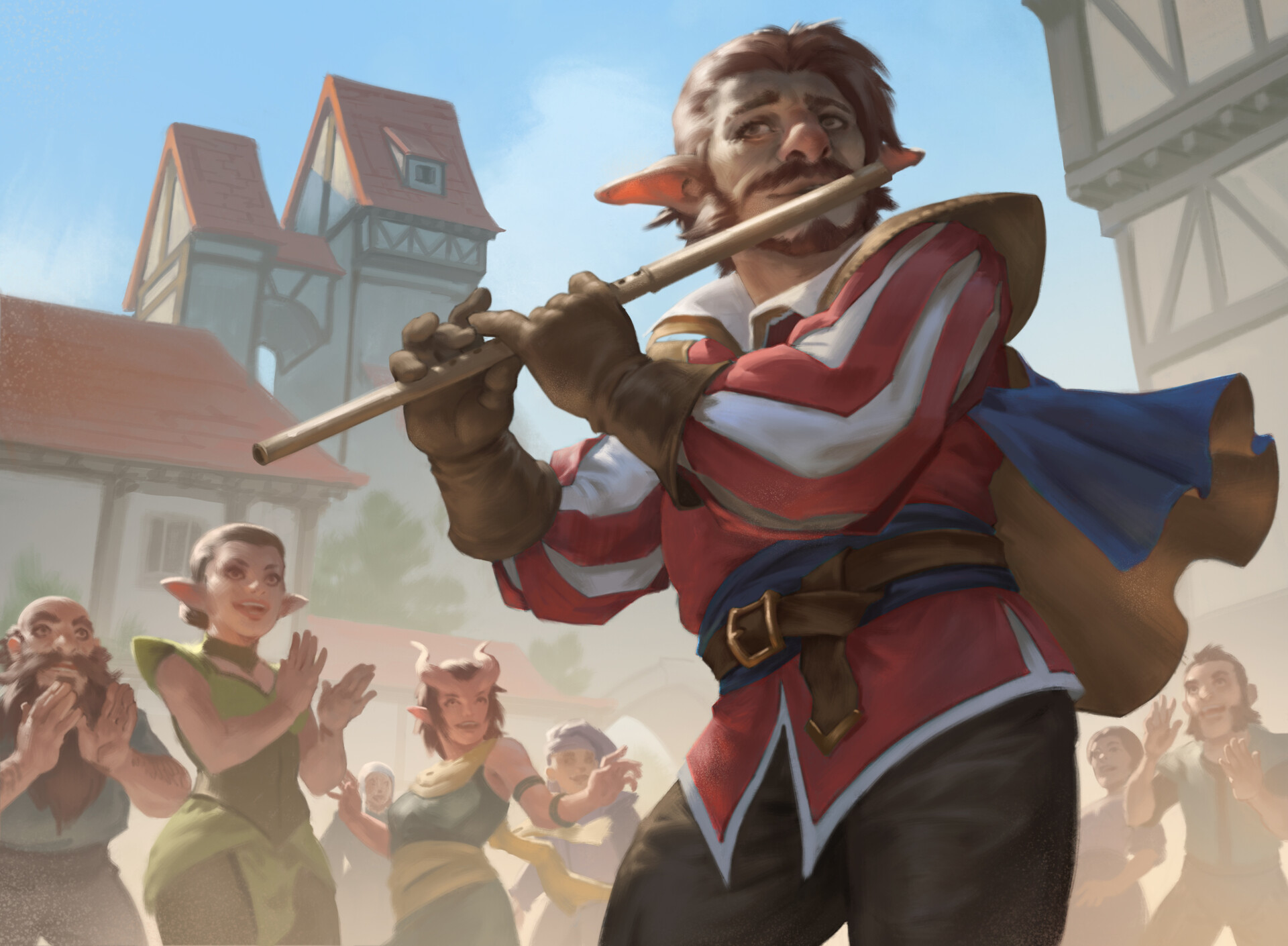



Alternate Bard
Become the wandering master of folk magic you were meant to be with this alternate take on the Bard! Channel the Song of Creation with eight Bardic Traditions and thirteen Chords of Power!
Version 2.0.0 - Created by /u/laserllama
Last Updated: August 4th, 2024
Artist Credits:
Covers - S. Prescott - Ellywick Tumblestrum
Page 1 - Rudy Siswanto - Wandering Troubadour
Page 3 - Lie Setaiwan - Song of Inspiration
Page 4 - Eric Deschamps - God of Storytelling
Page 5 - Eelis Kyttanen - Inspiring Bard
Page 6 - Filipe Pagliuso - Titan of the Waves
Page 7 - Olivier Bernard - Dwarf Berserker Token
Page 9 - Kieran Yanner - Moon Dancer
Page 10 - Livia Prima - Nirkana Revenant
Page 11 - Livia Prima - Deadly Fugitive
Page 12 - Tomas Duchek - Scholarship Advisor
Page 13 - David Rapoza - Dragonsguard Elite
Page 14 - Marie Magny - Tom Bombadil
Page 15 - Joseph Weston - Firbolg Flutist
